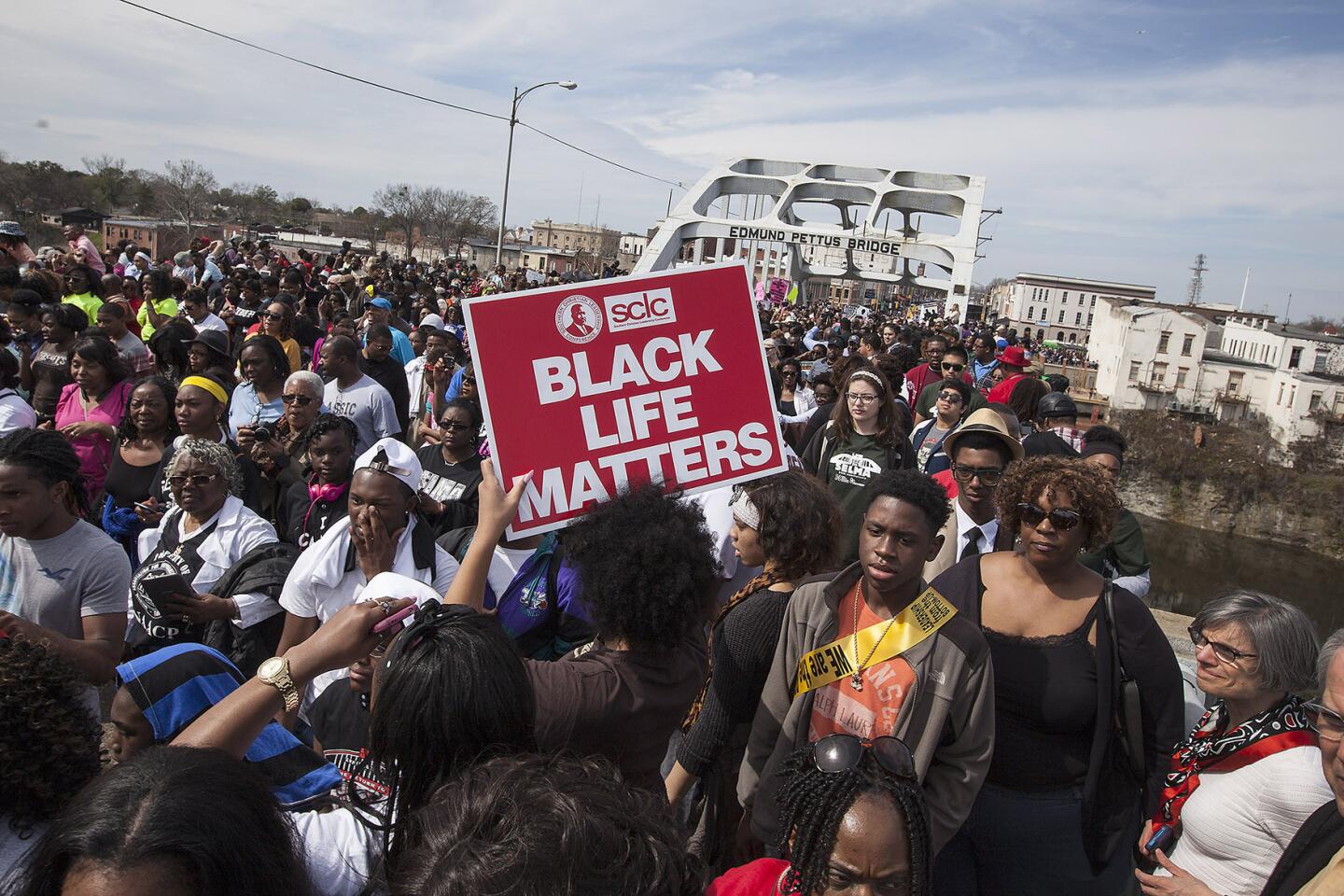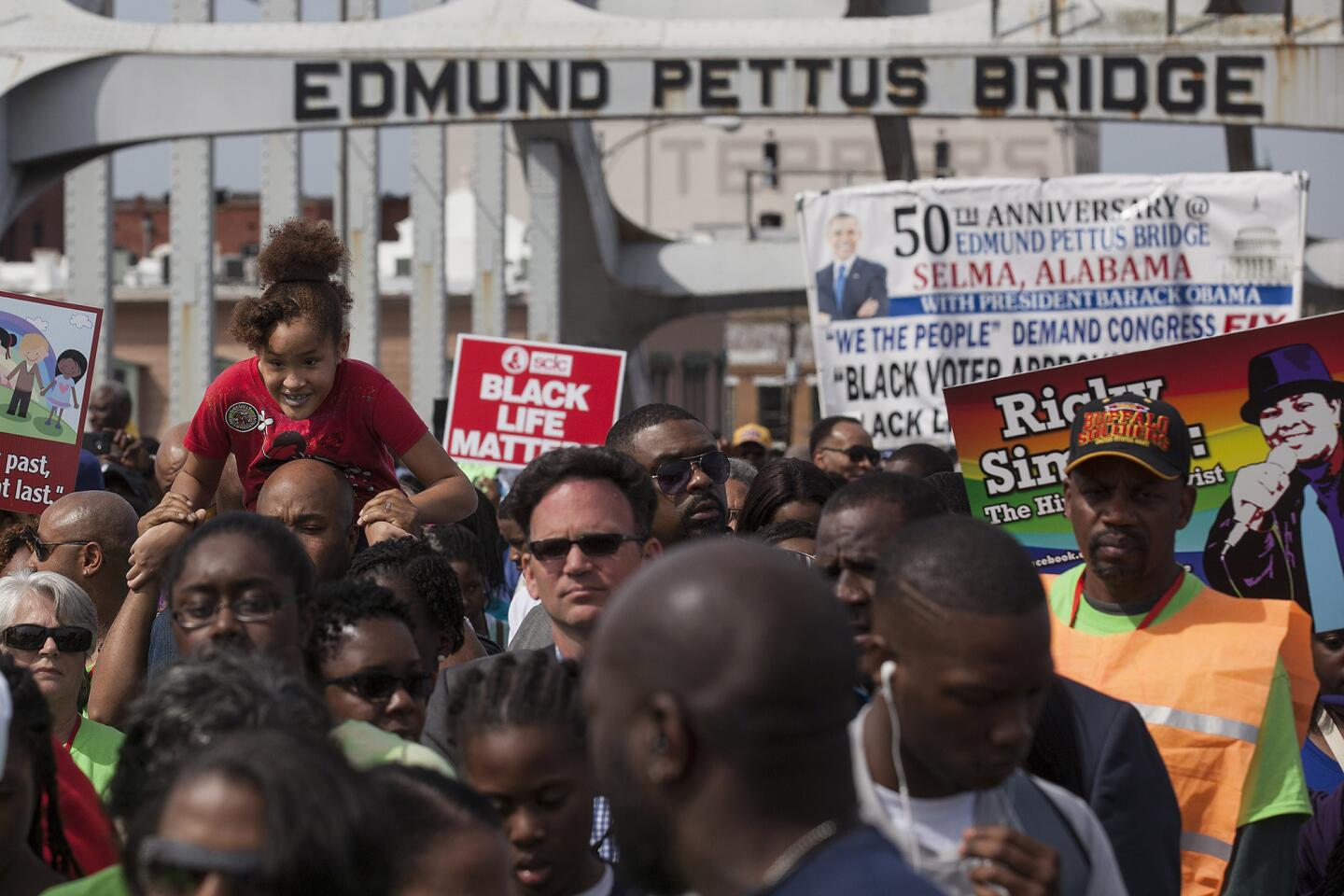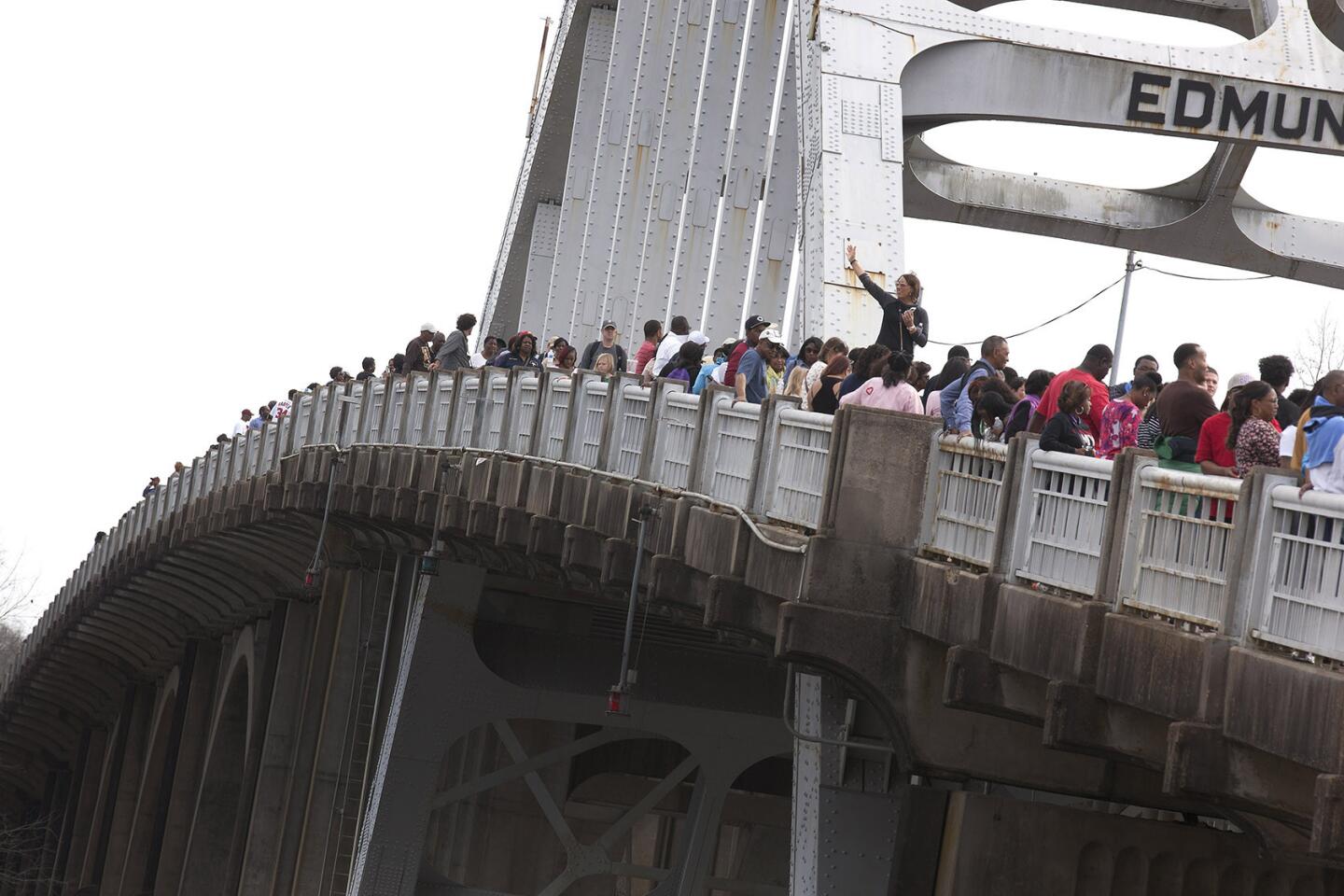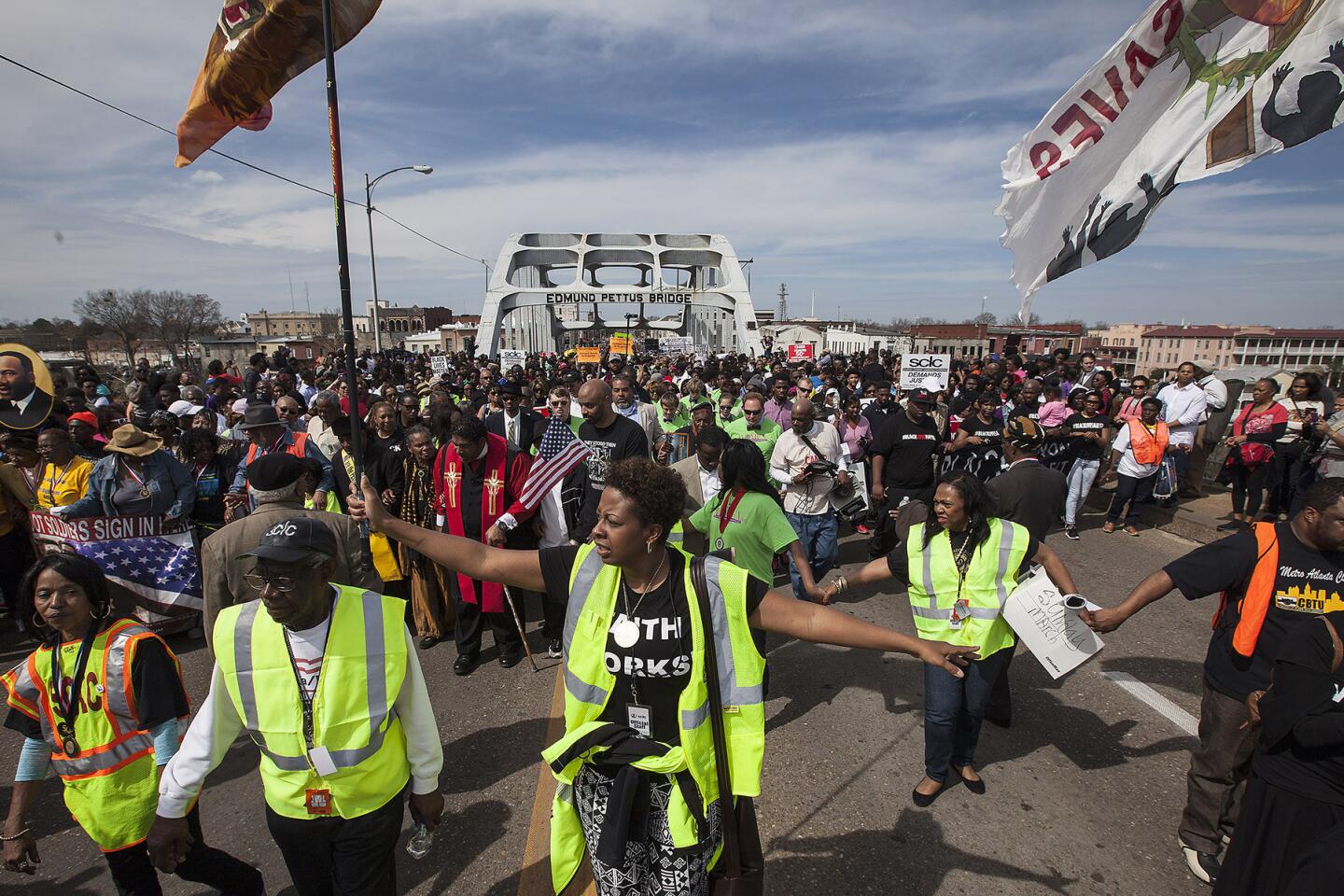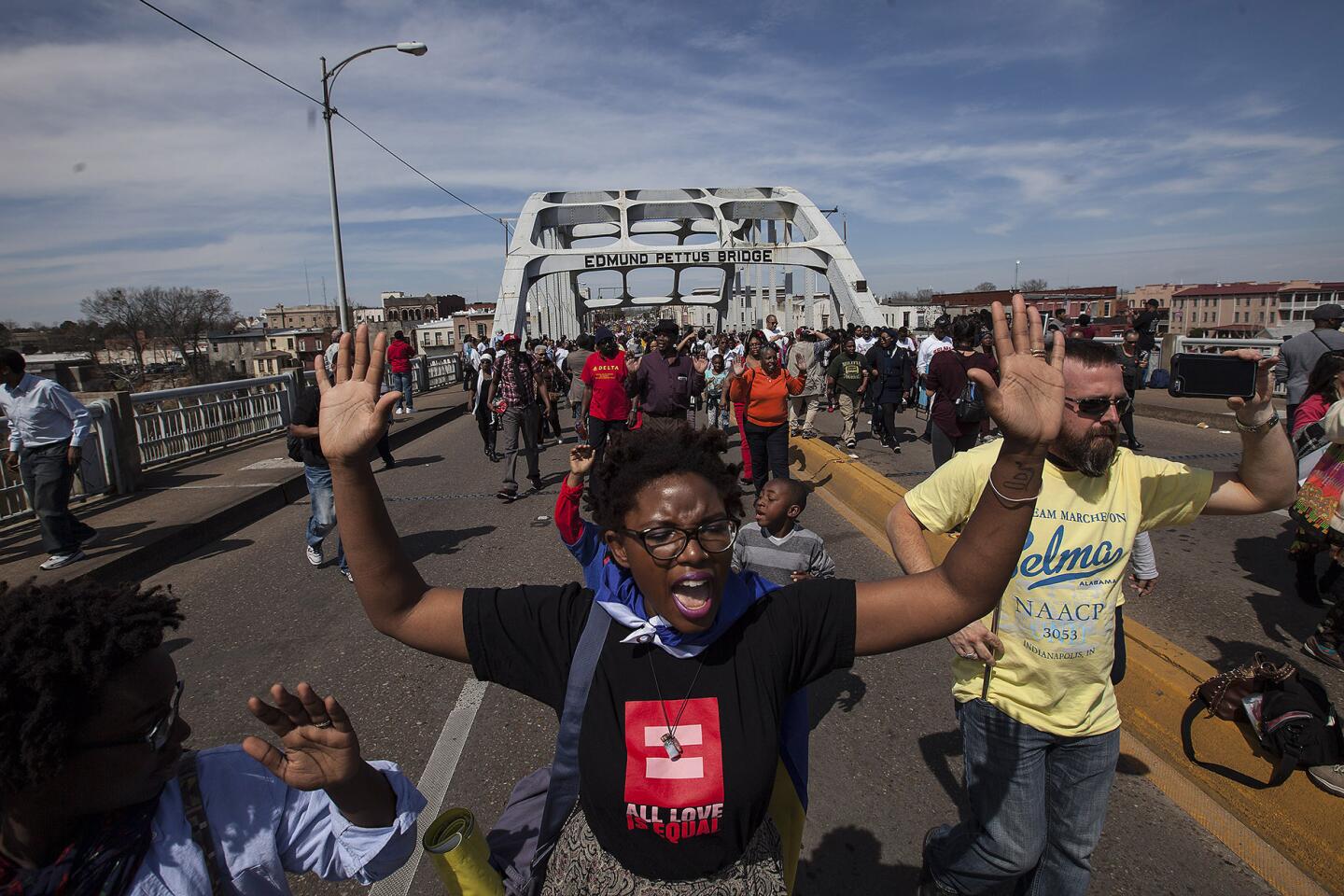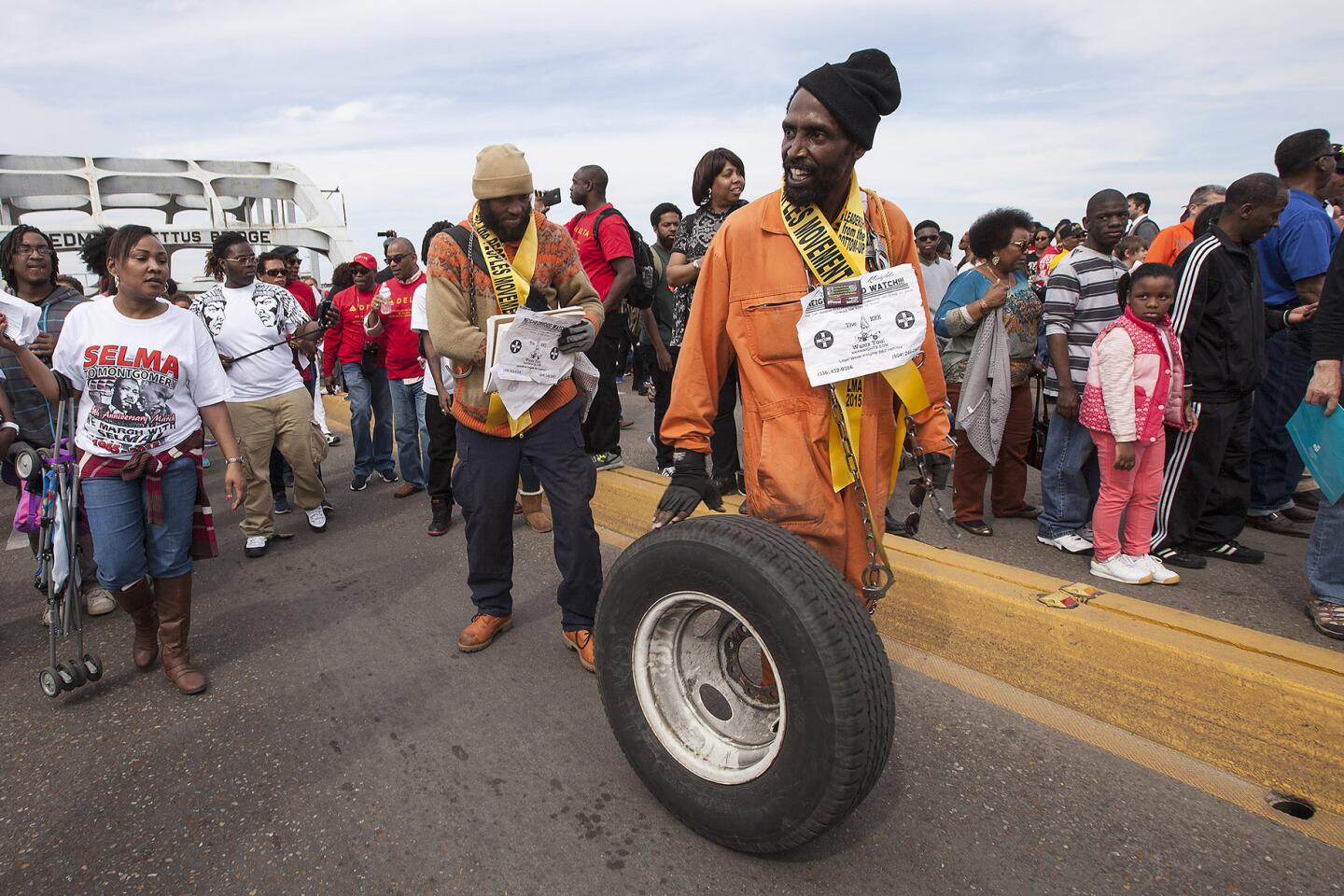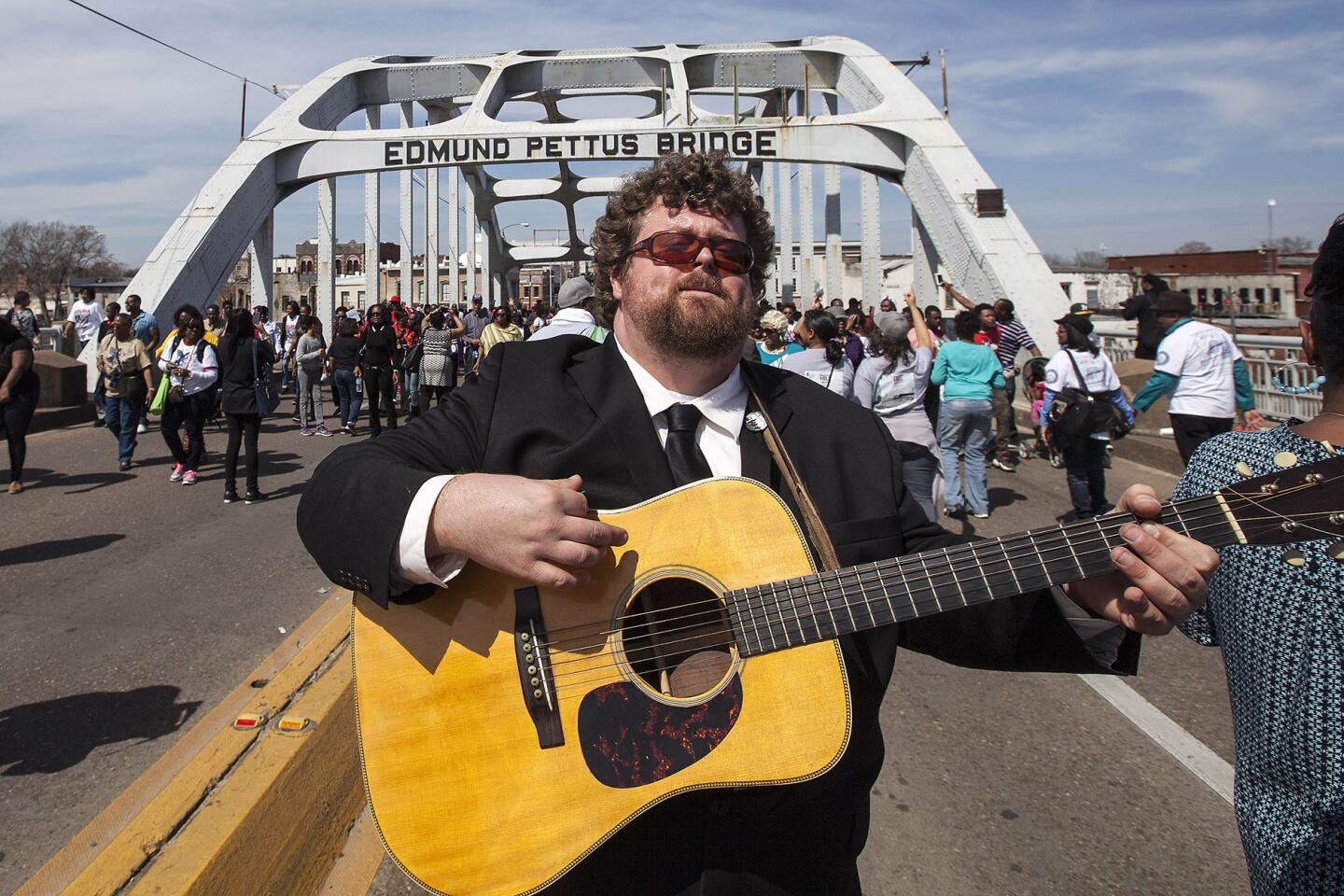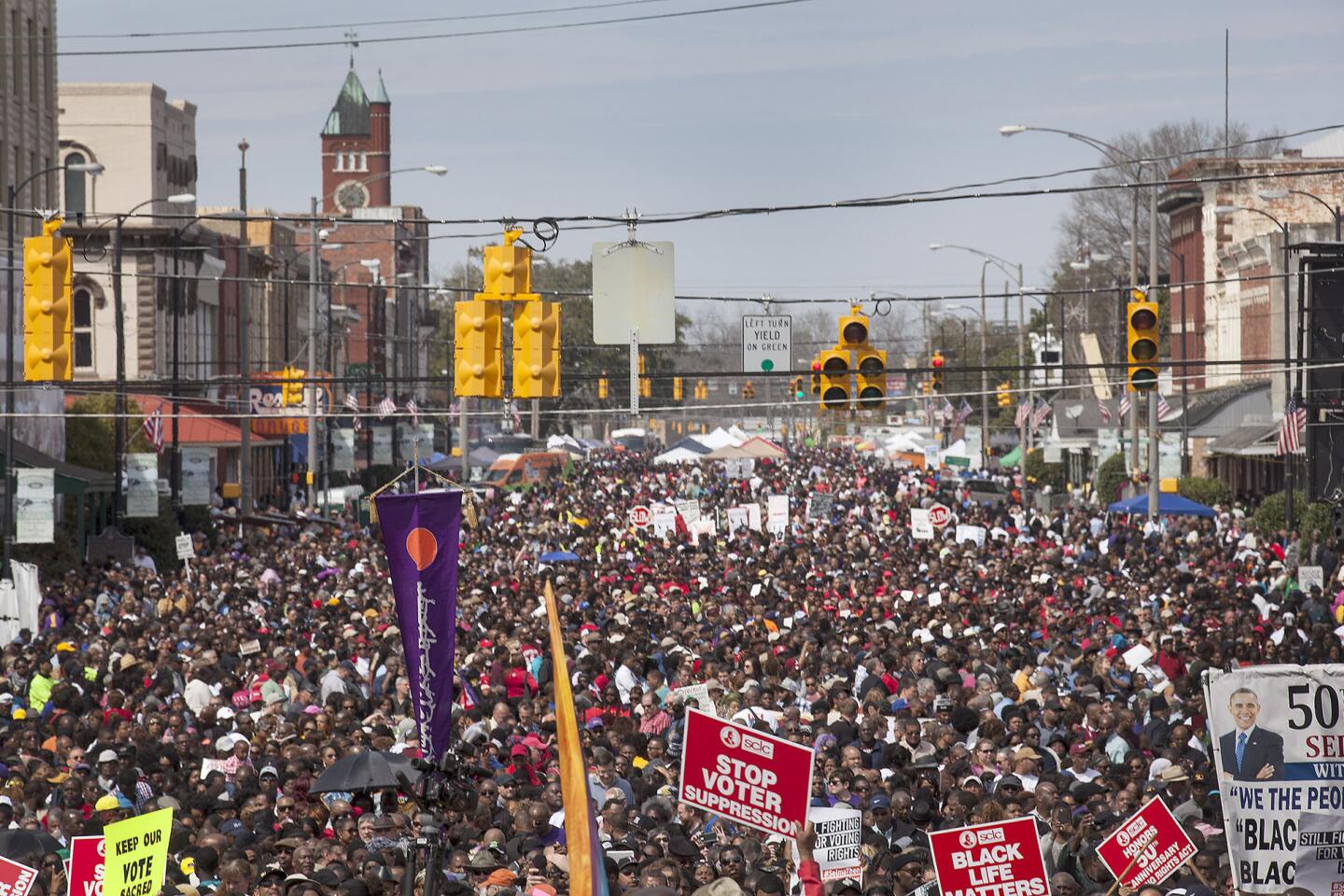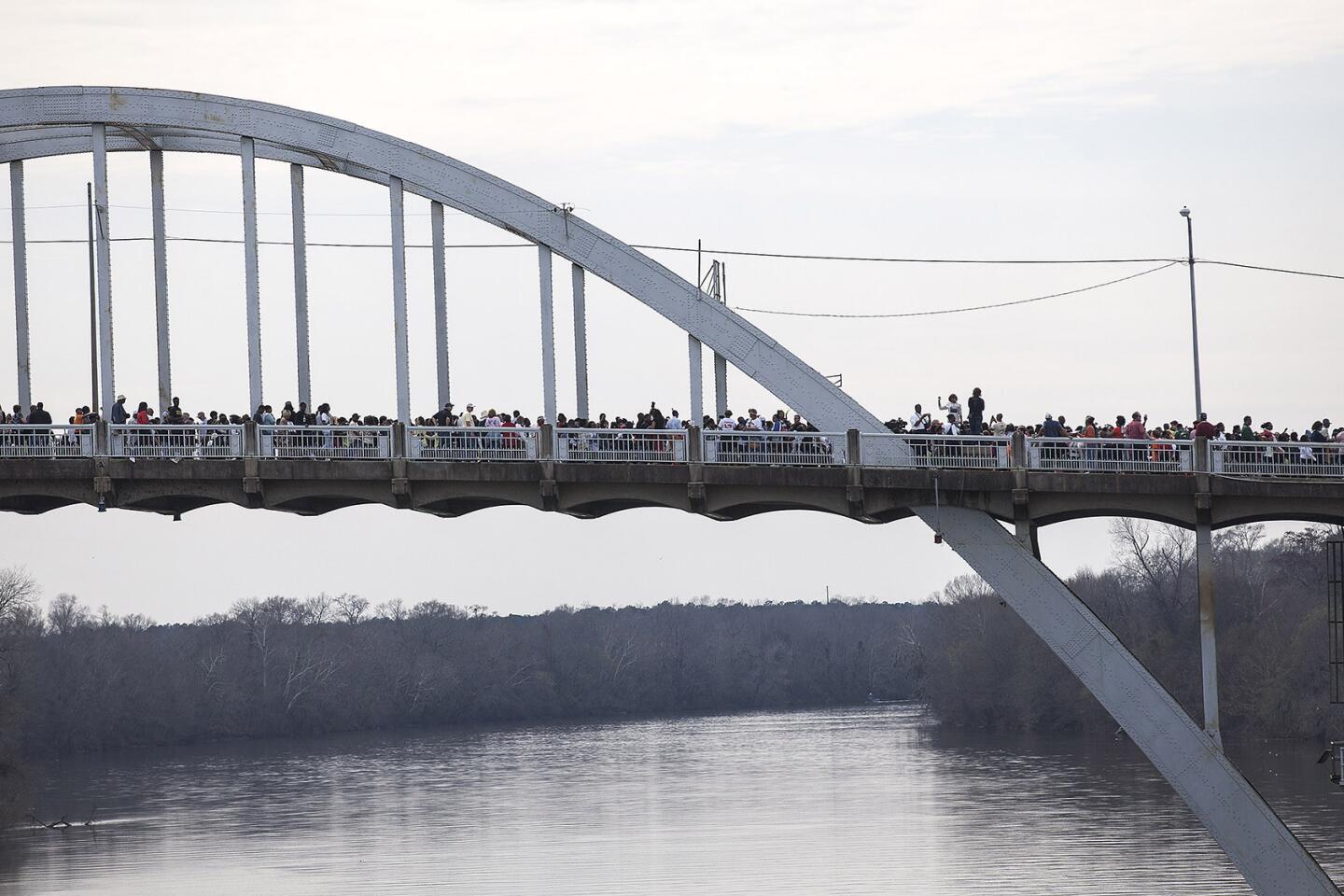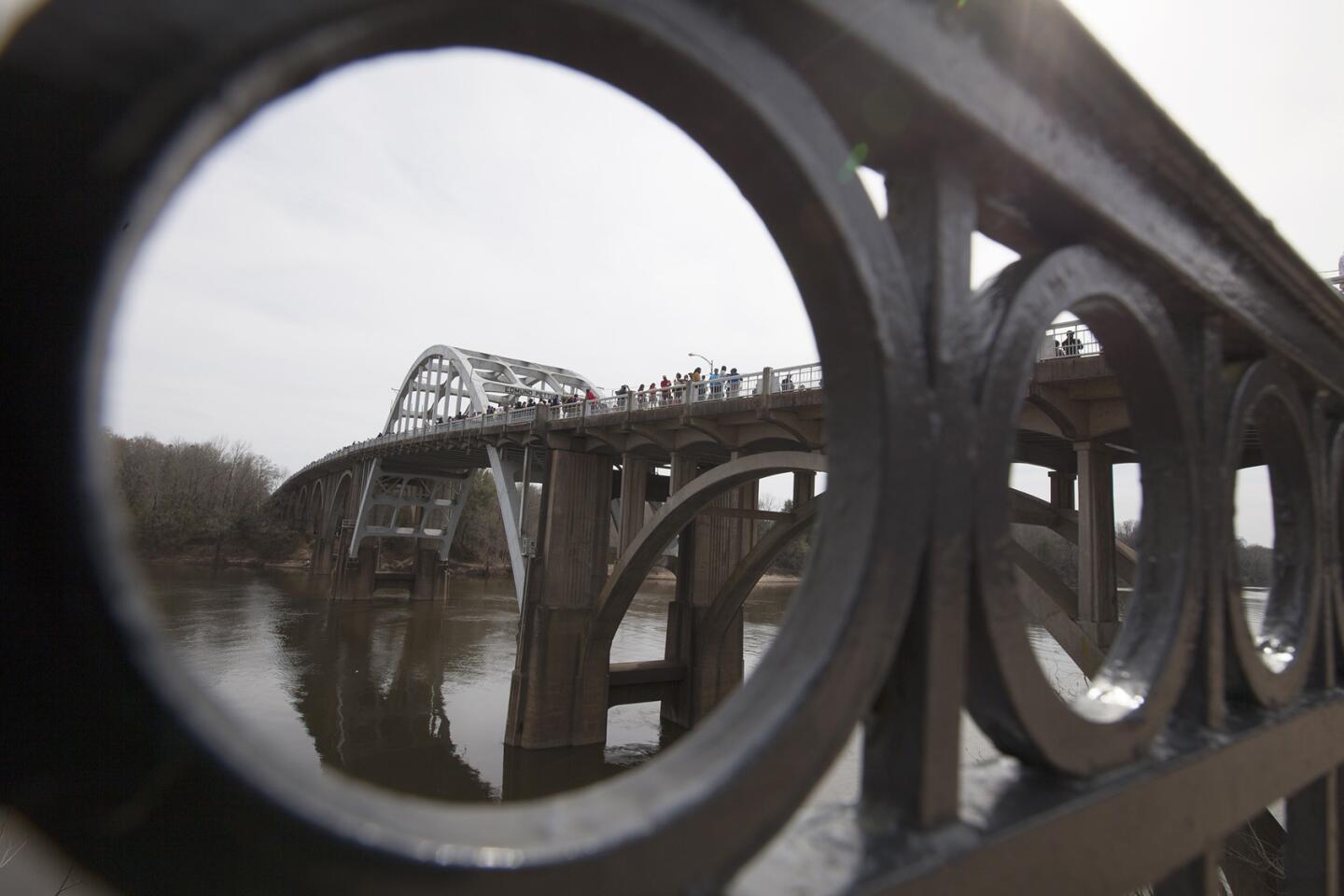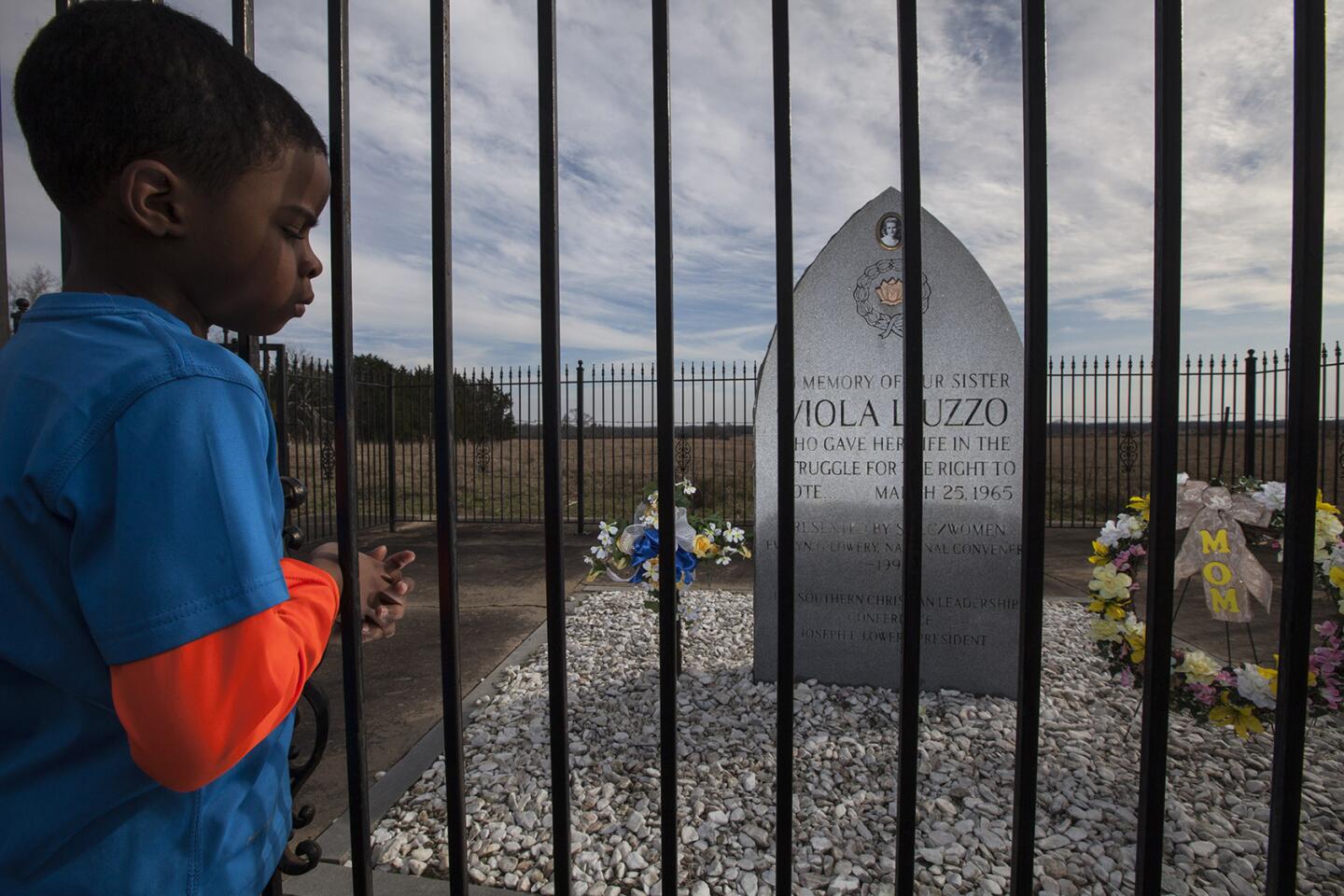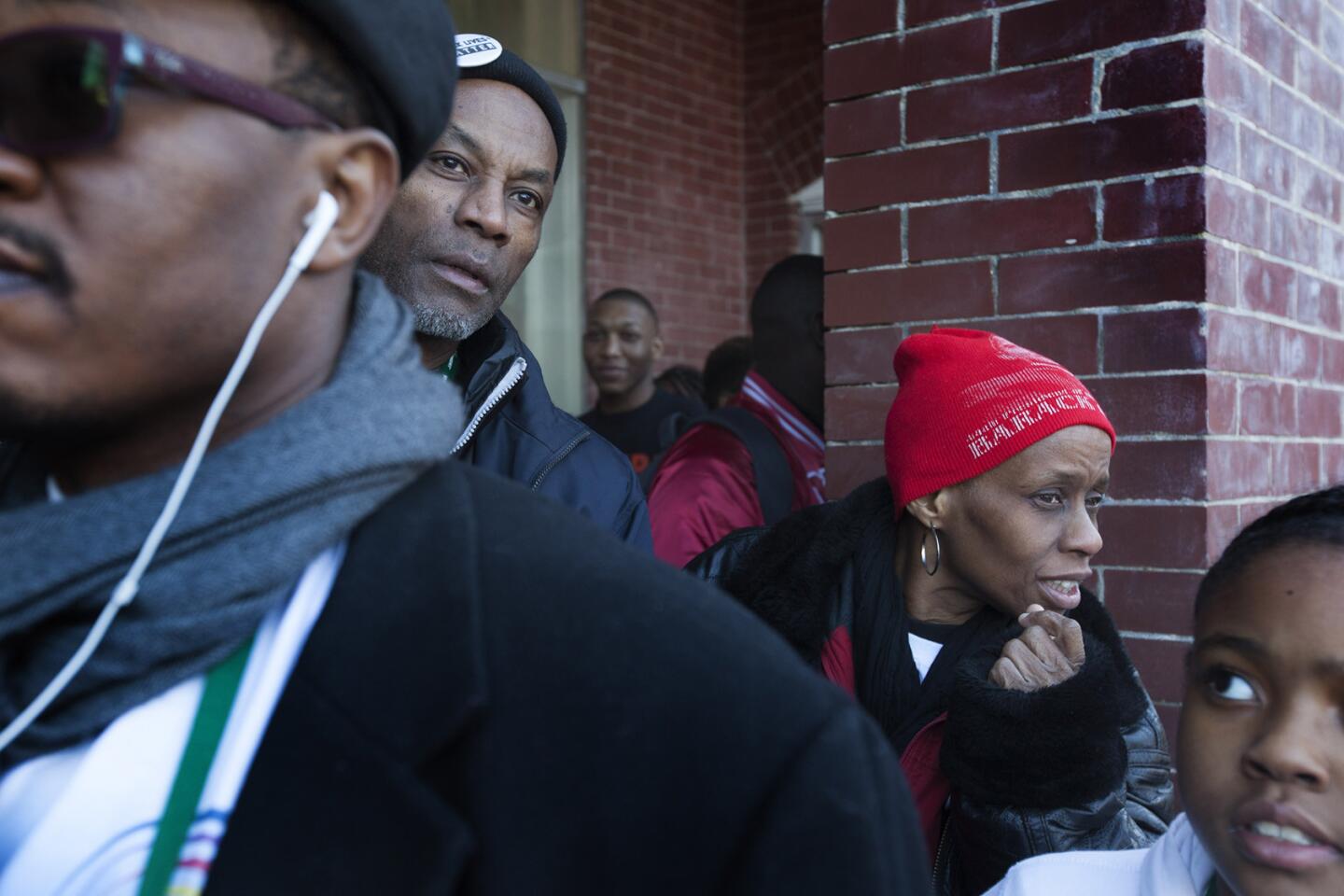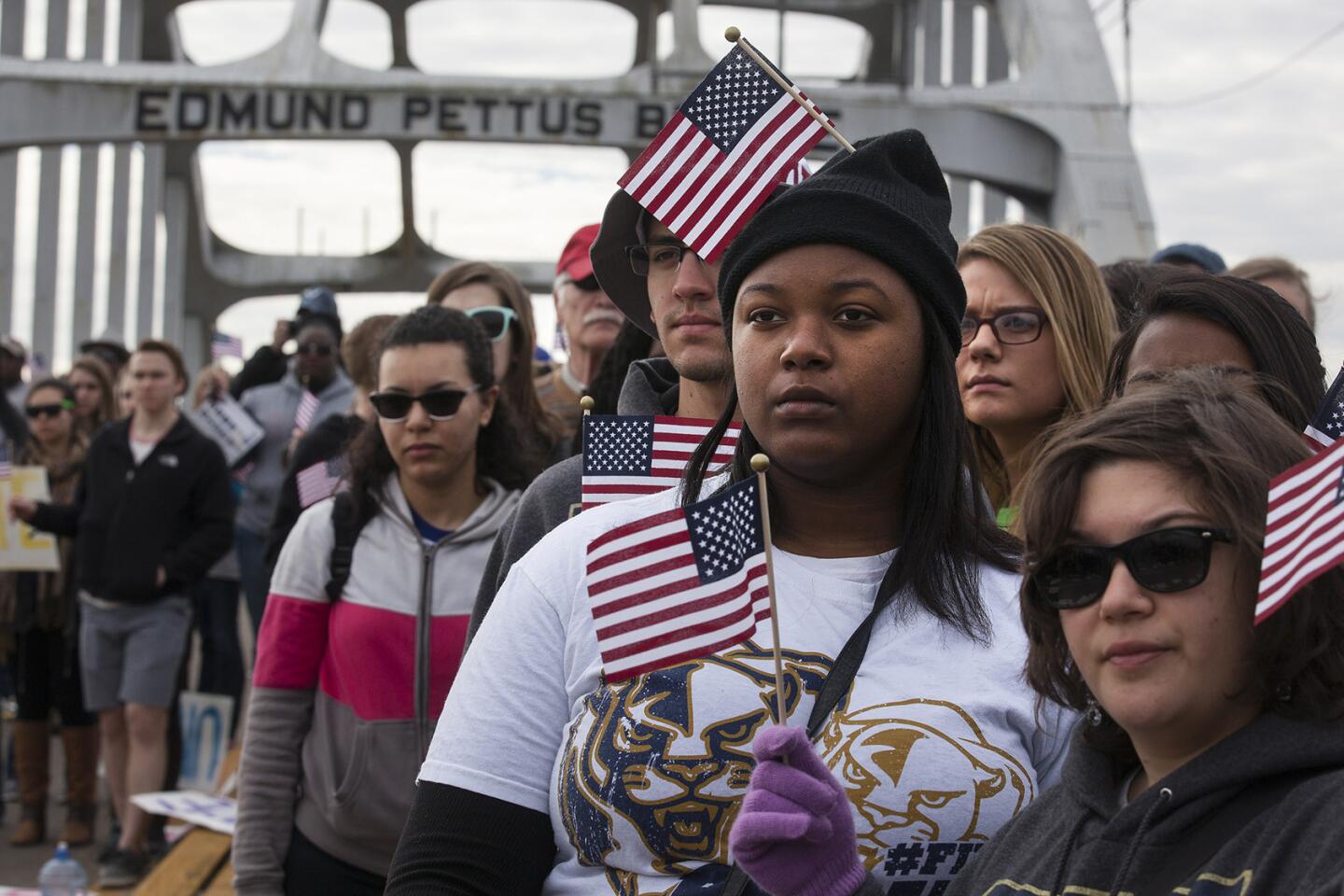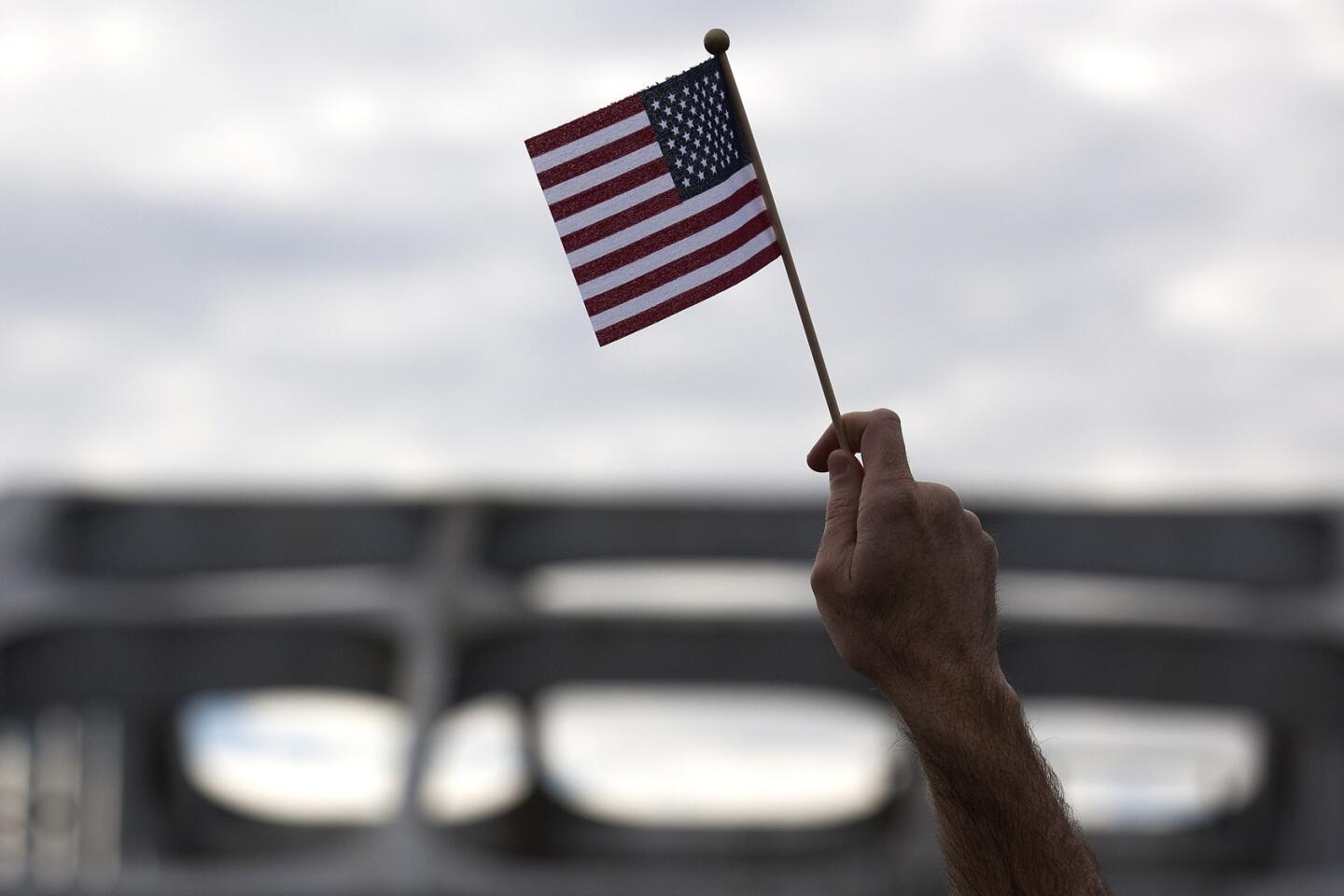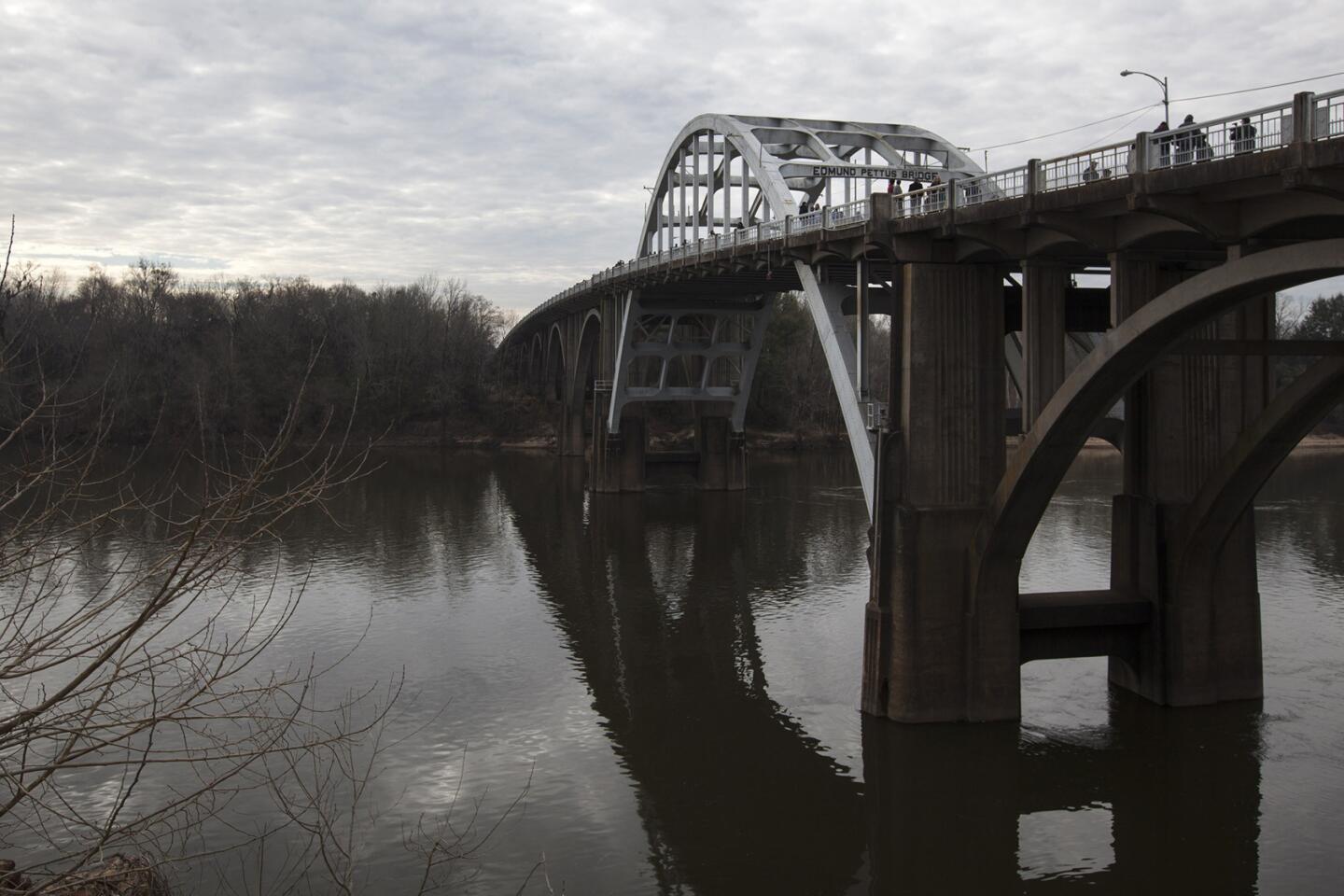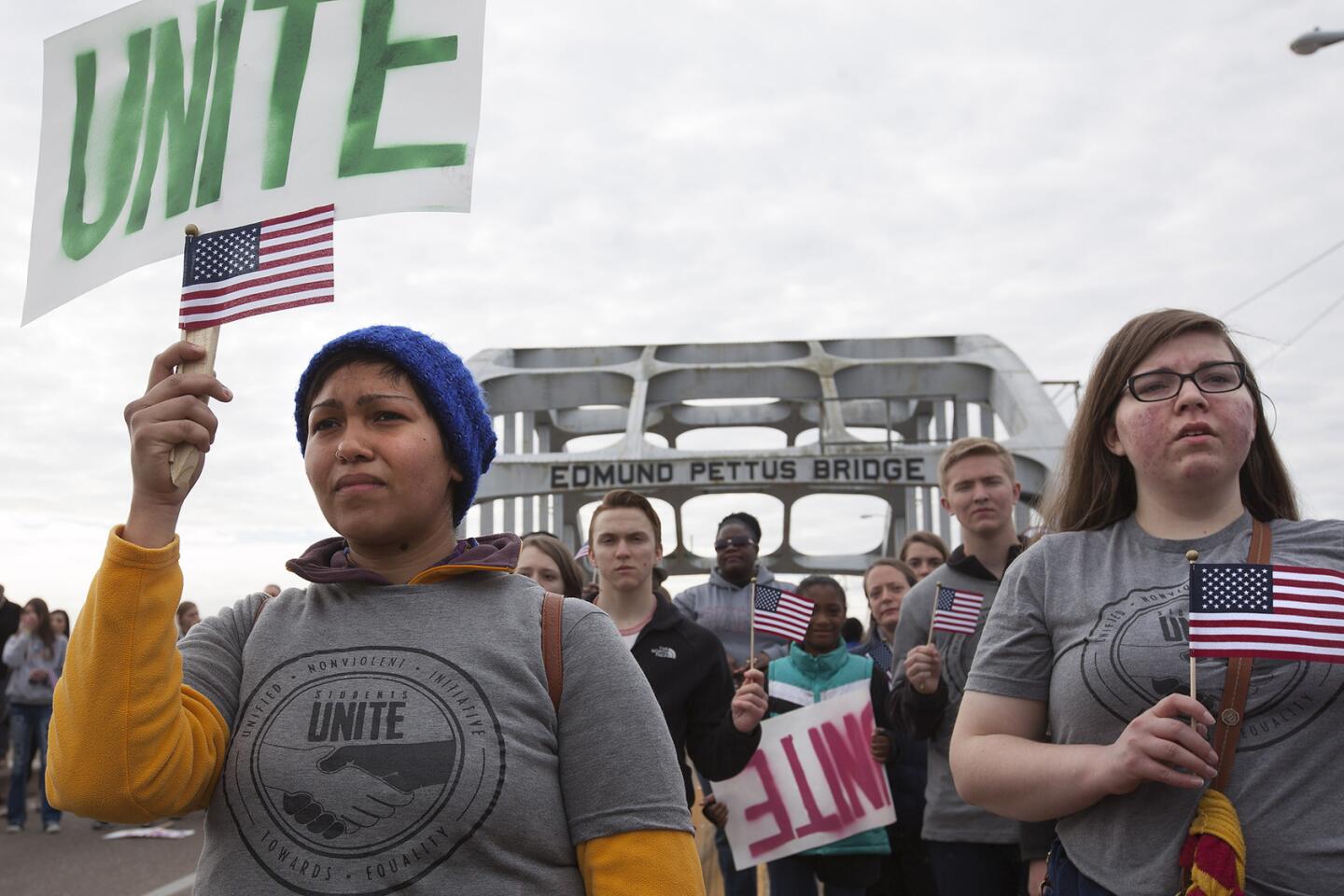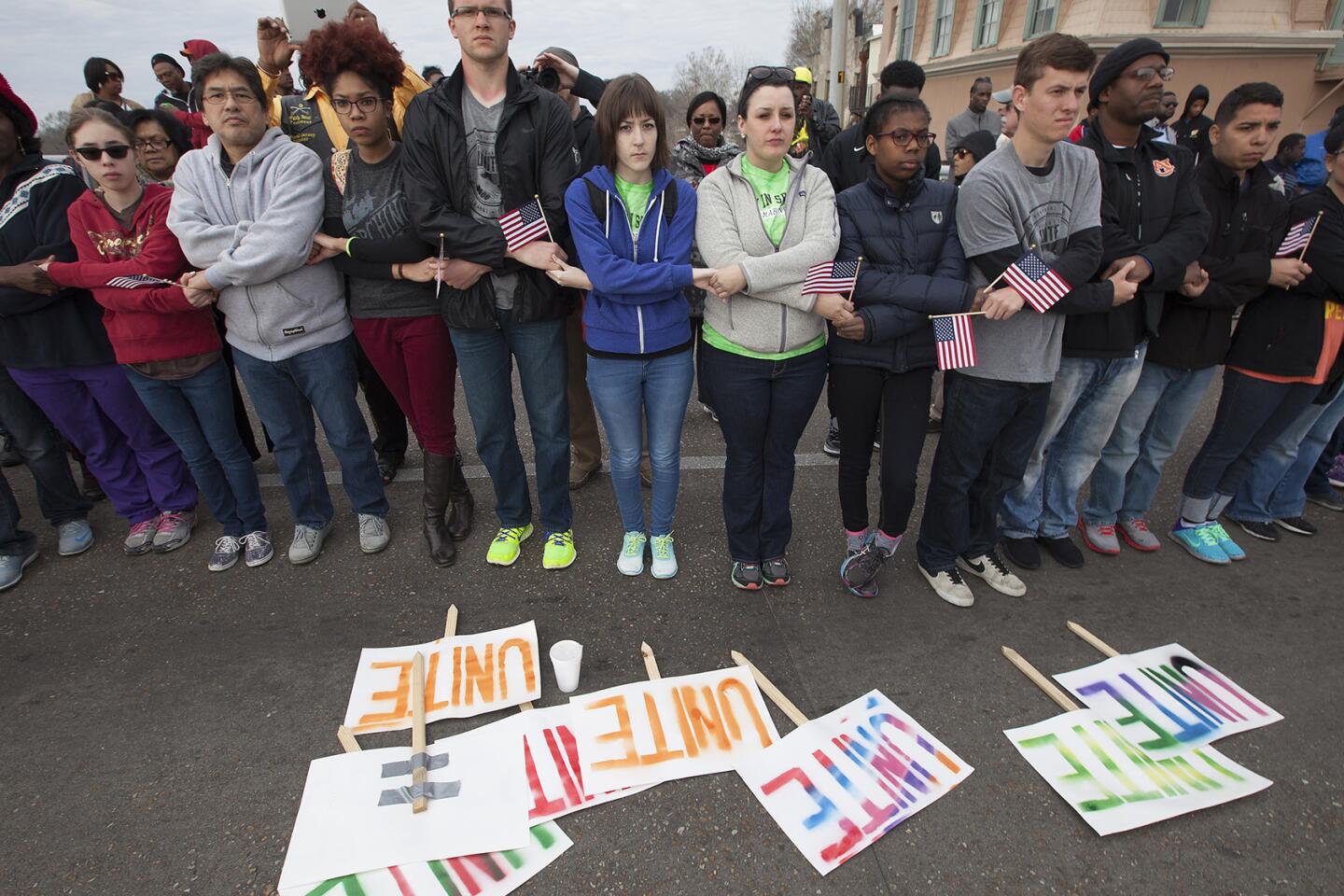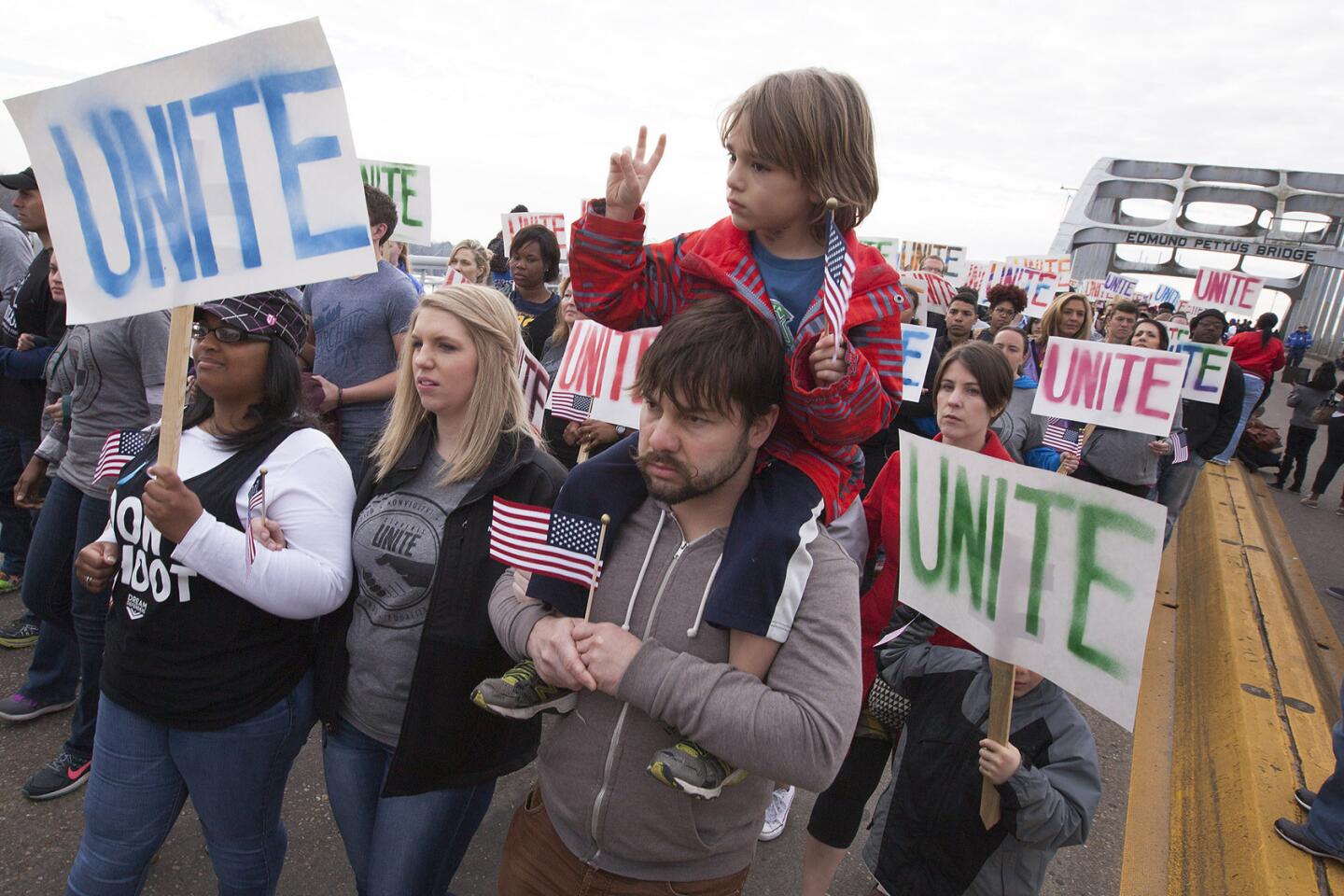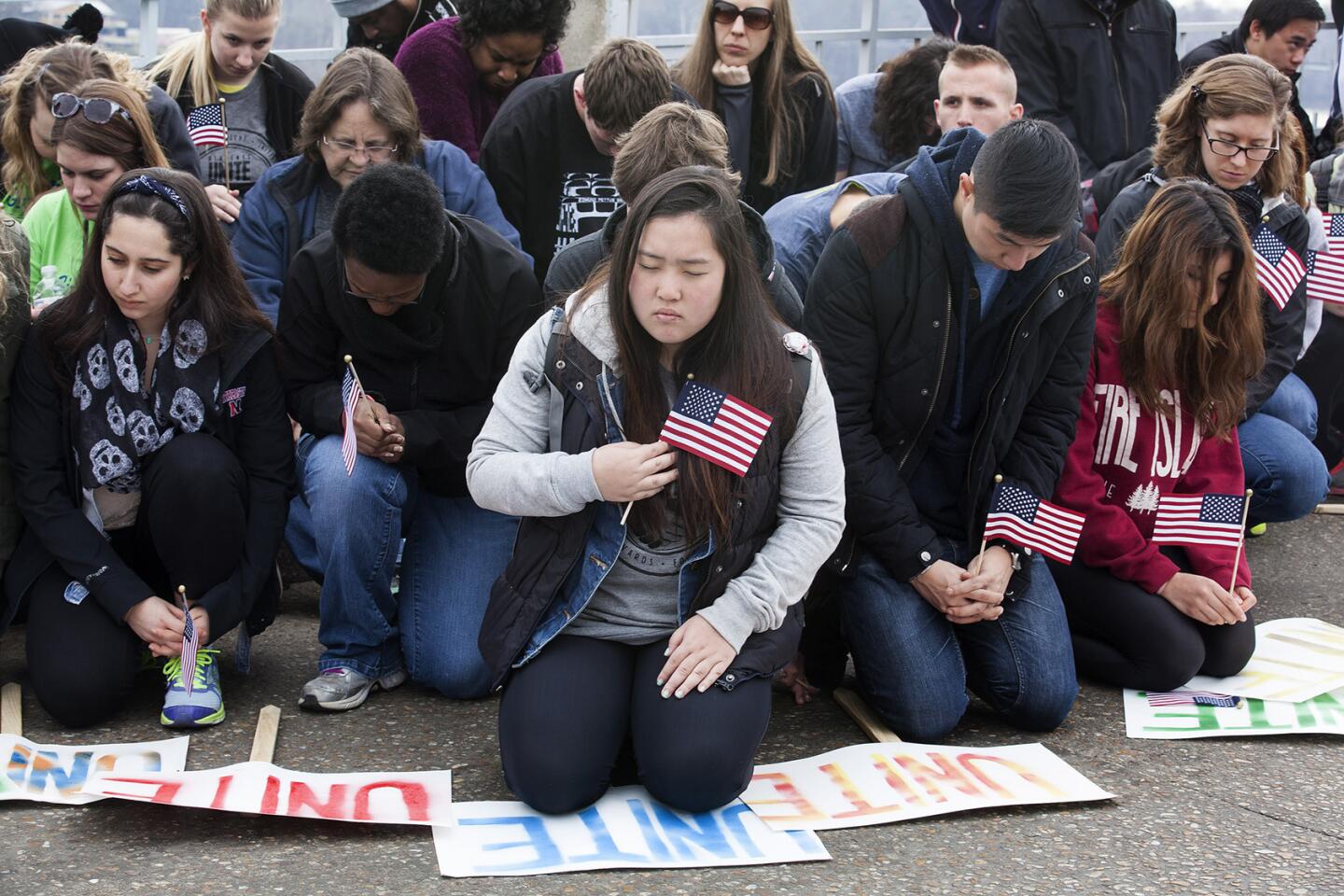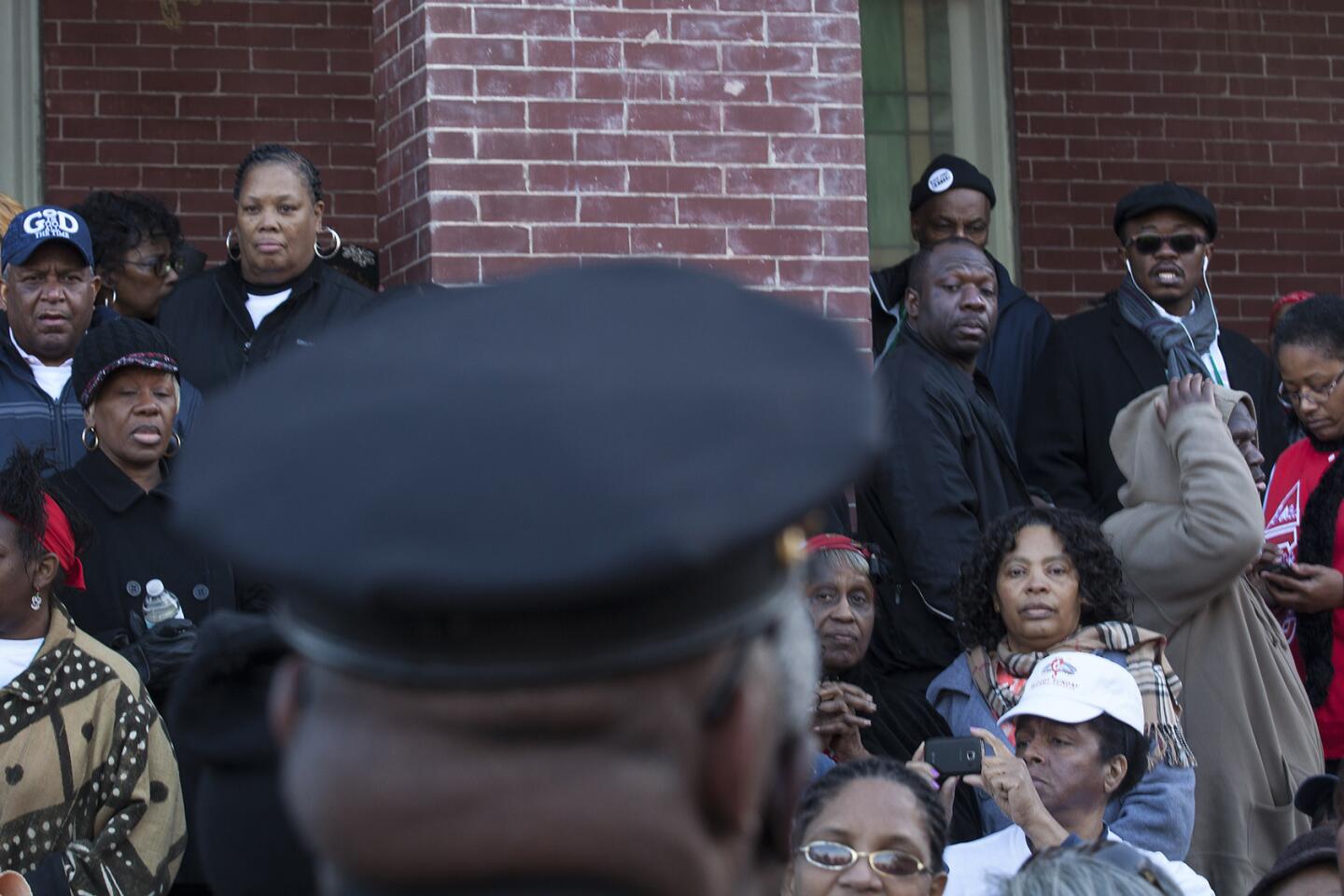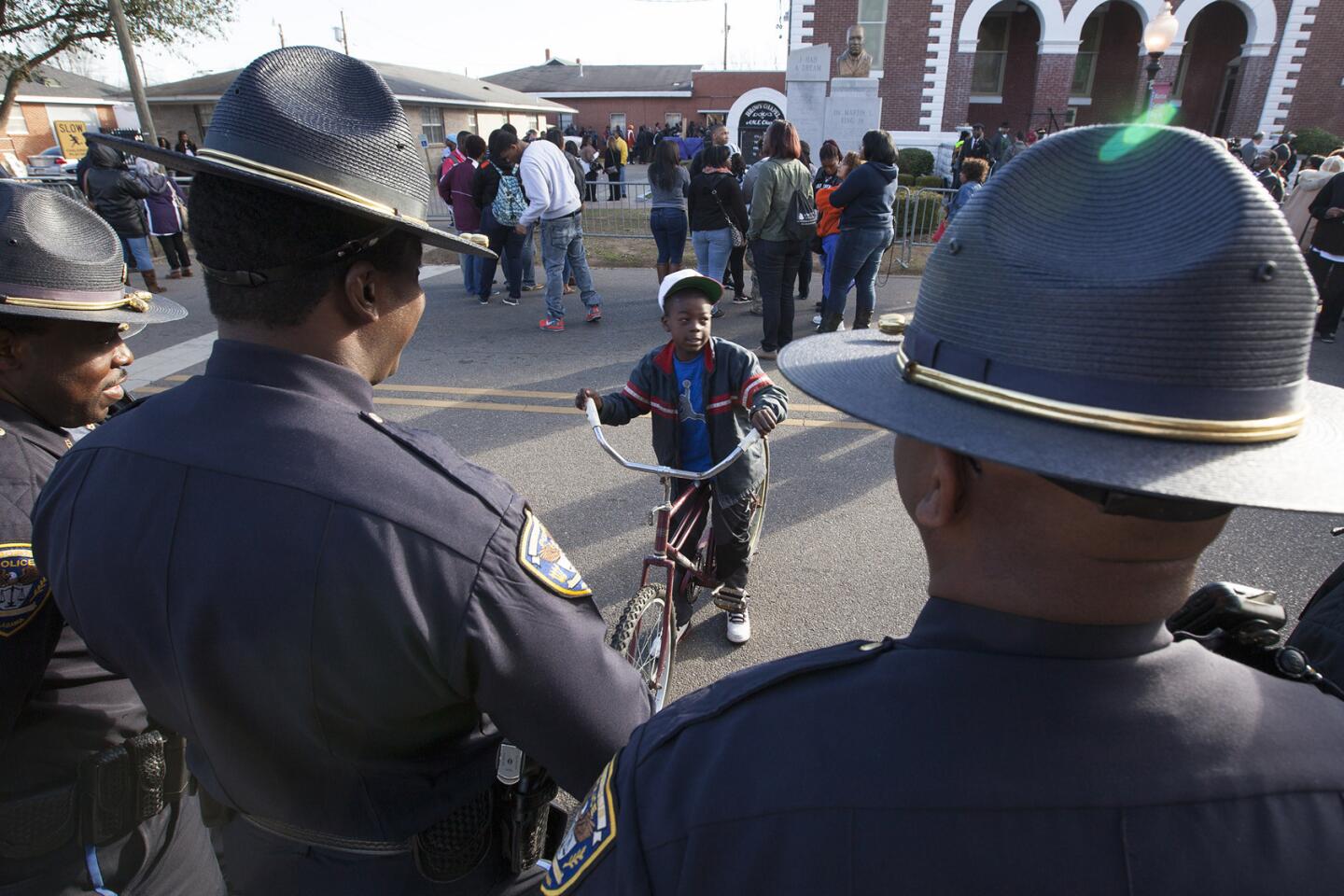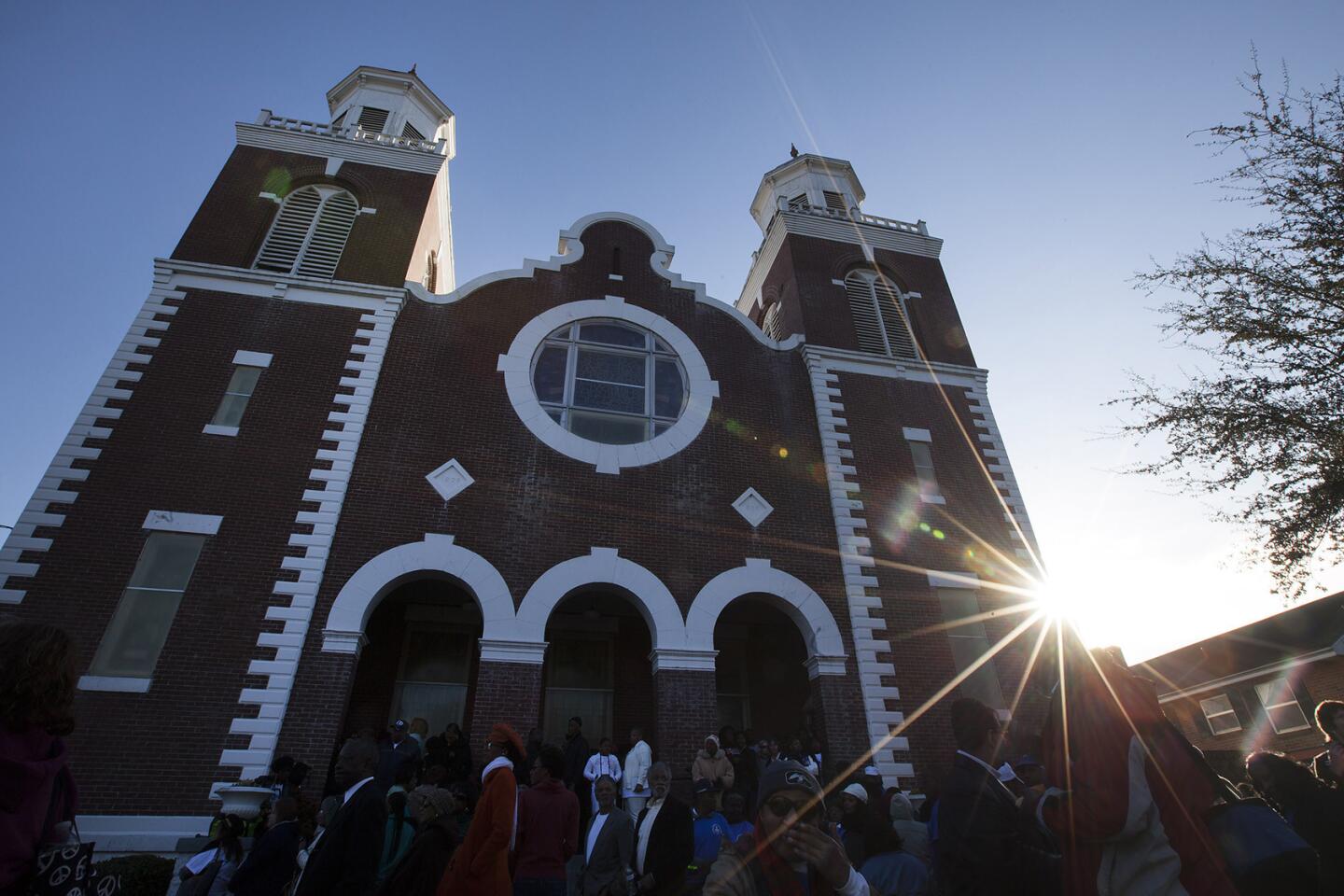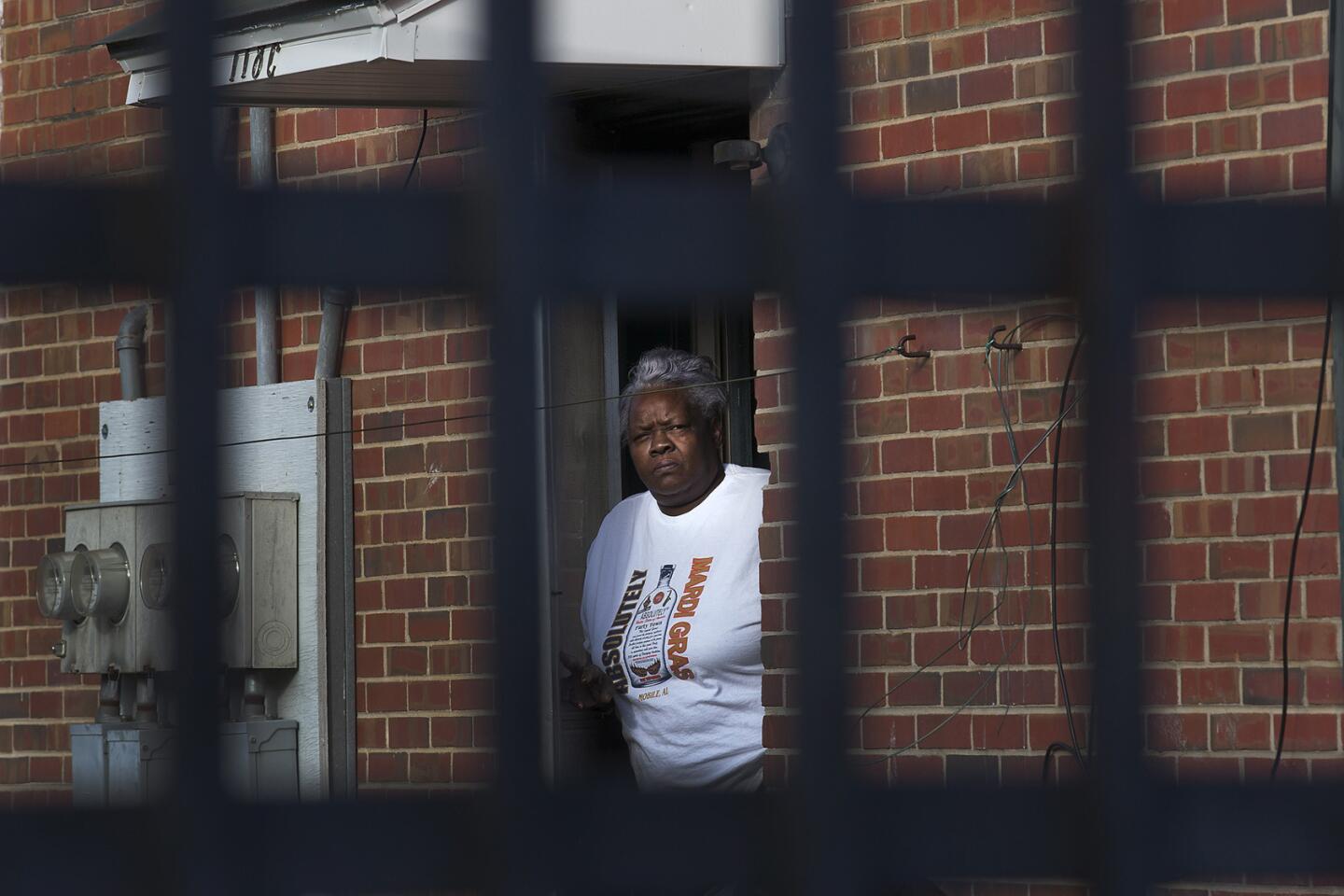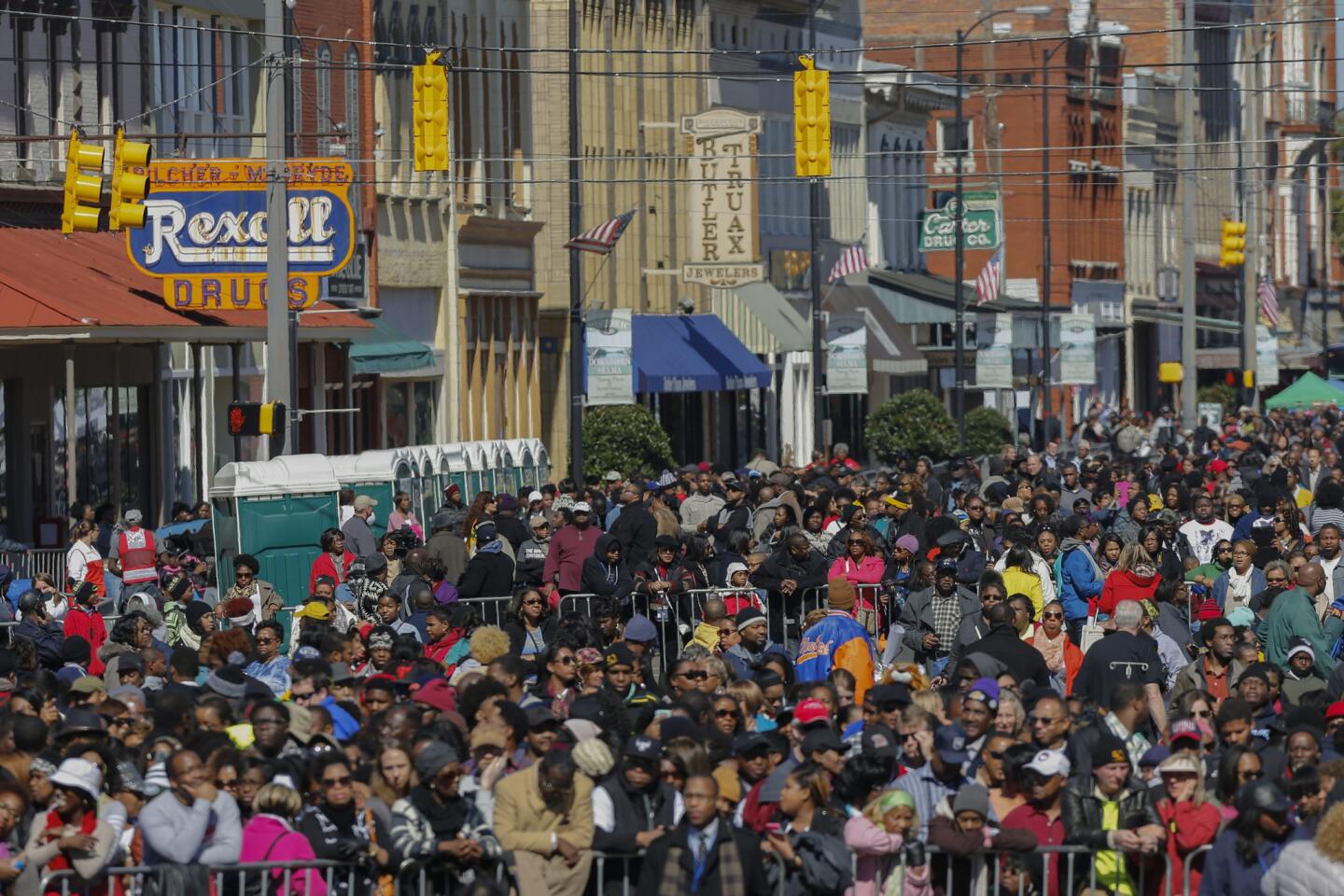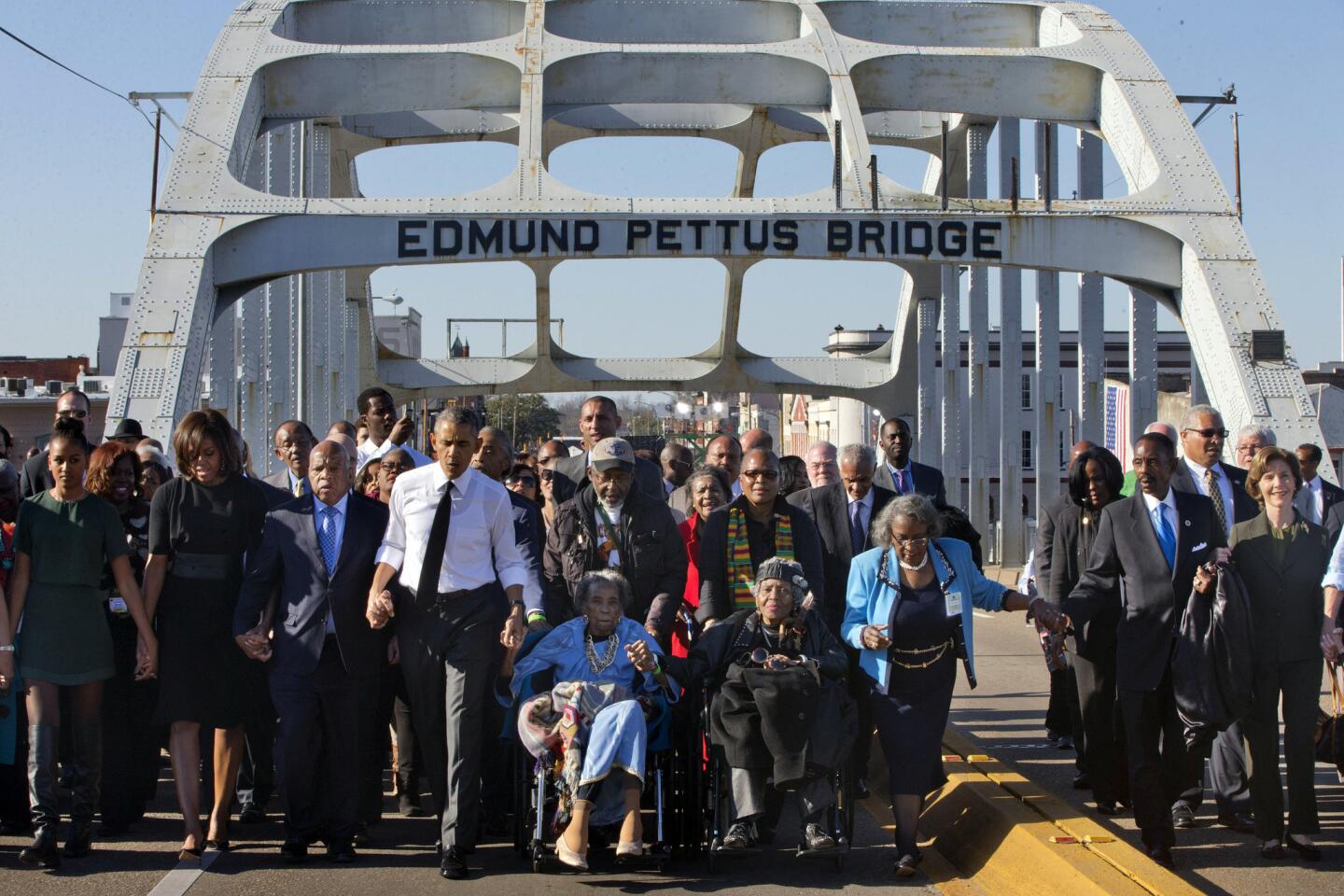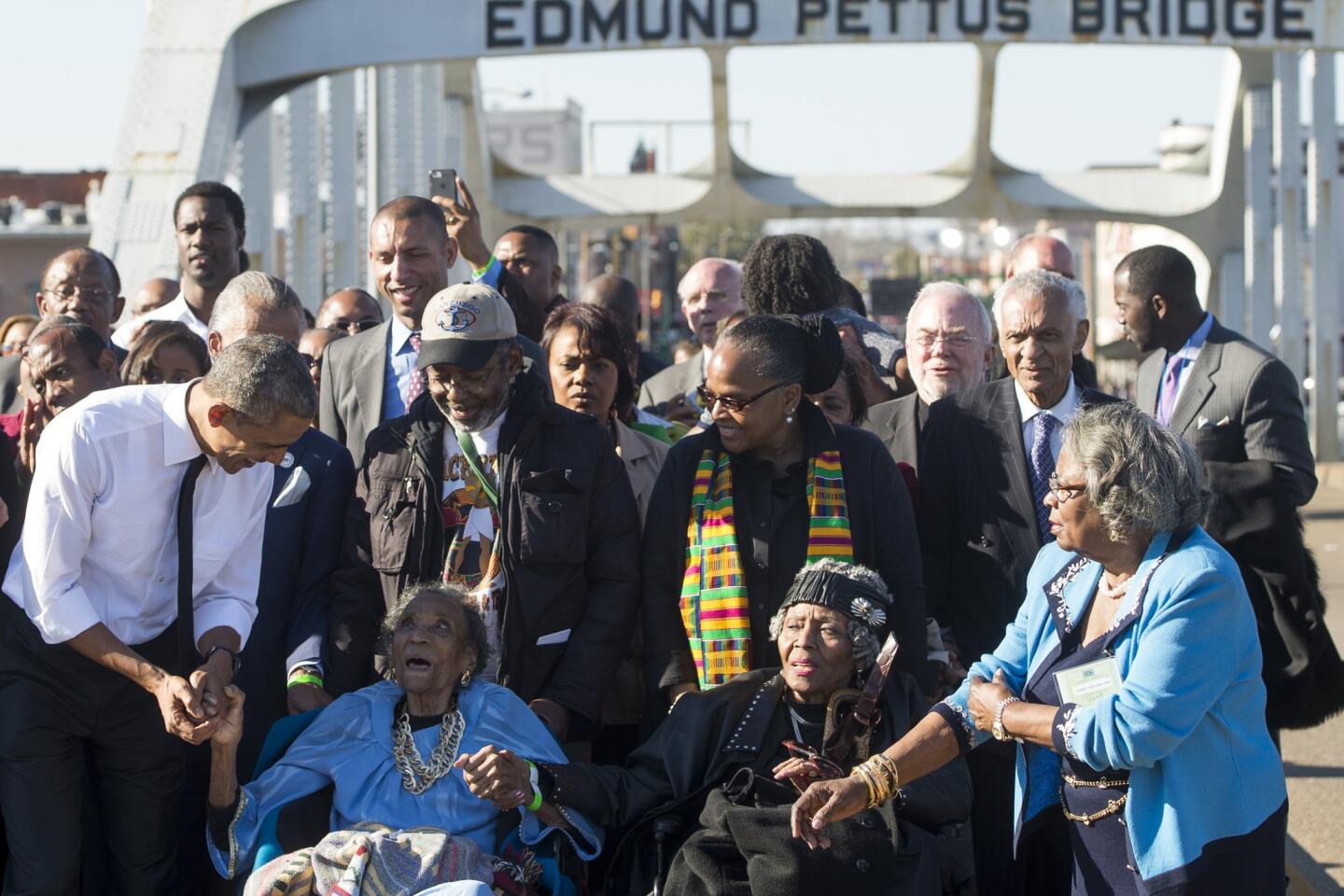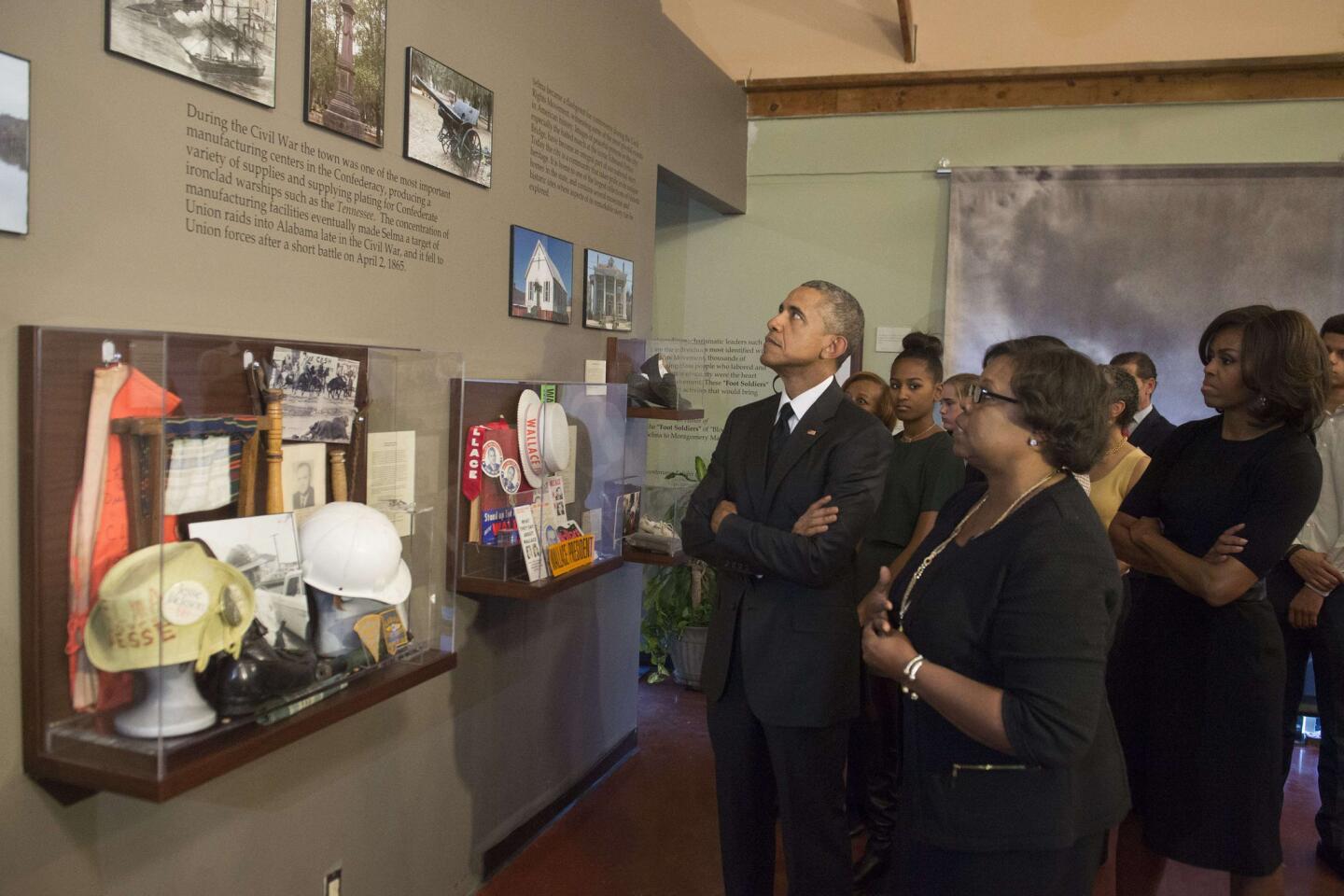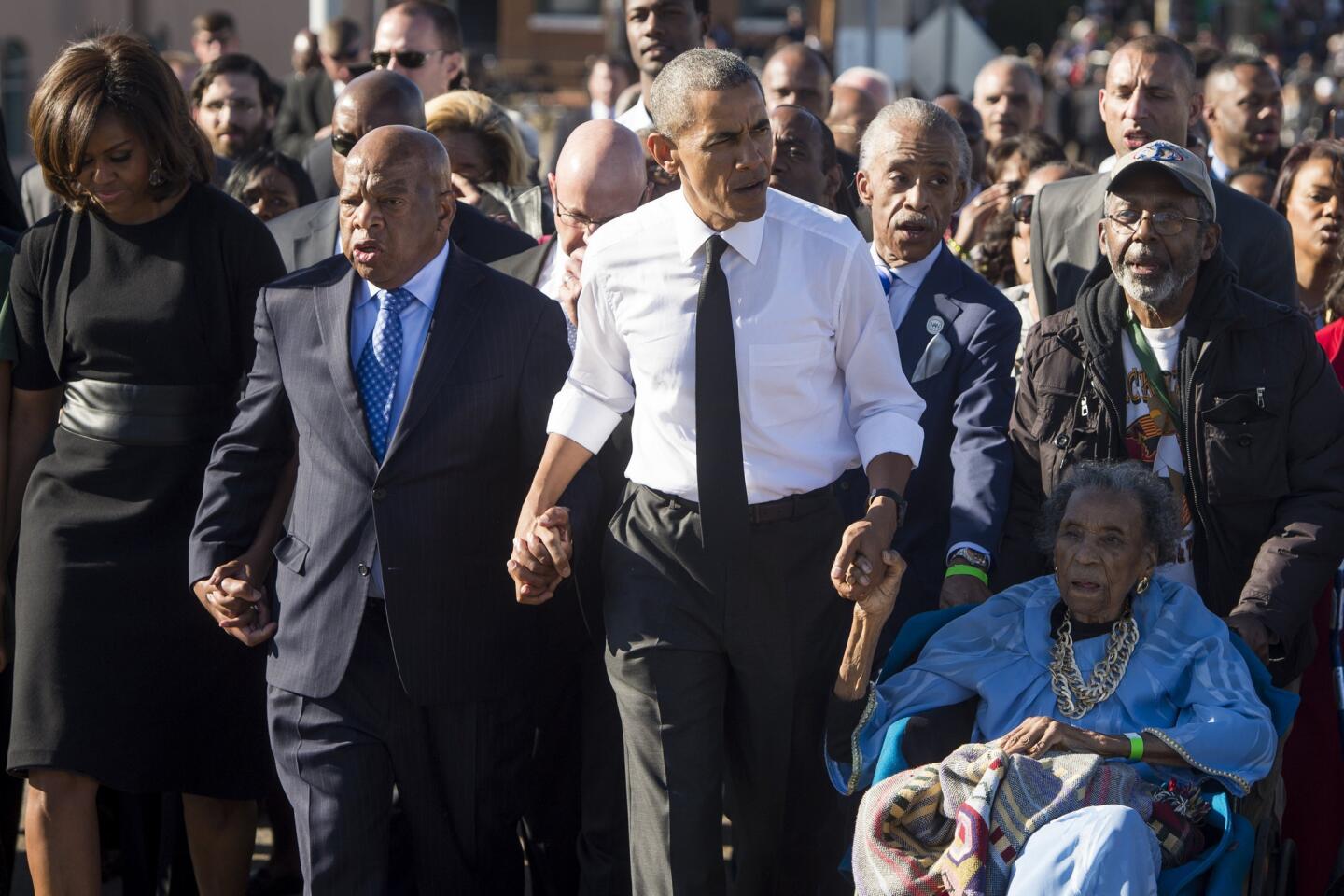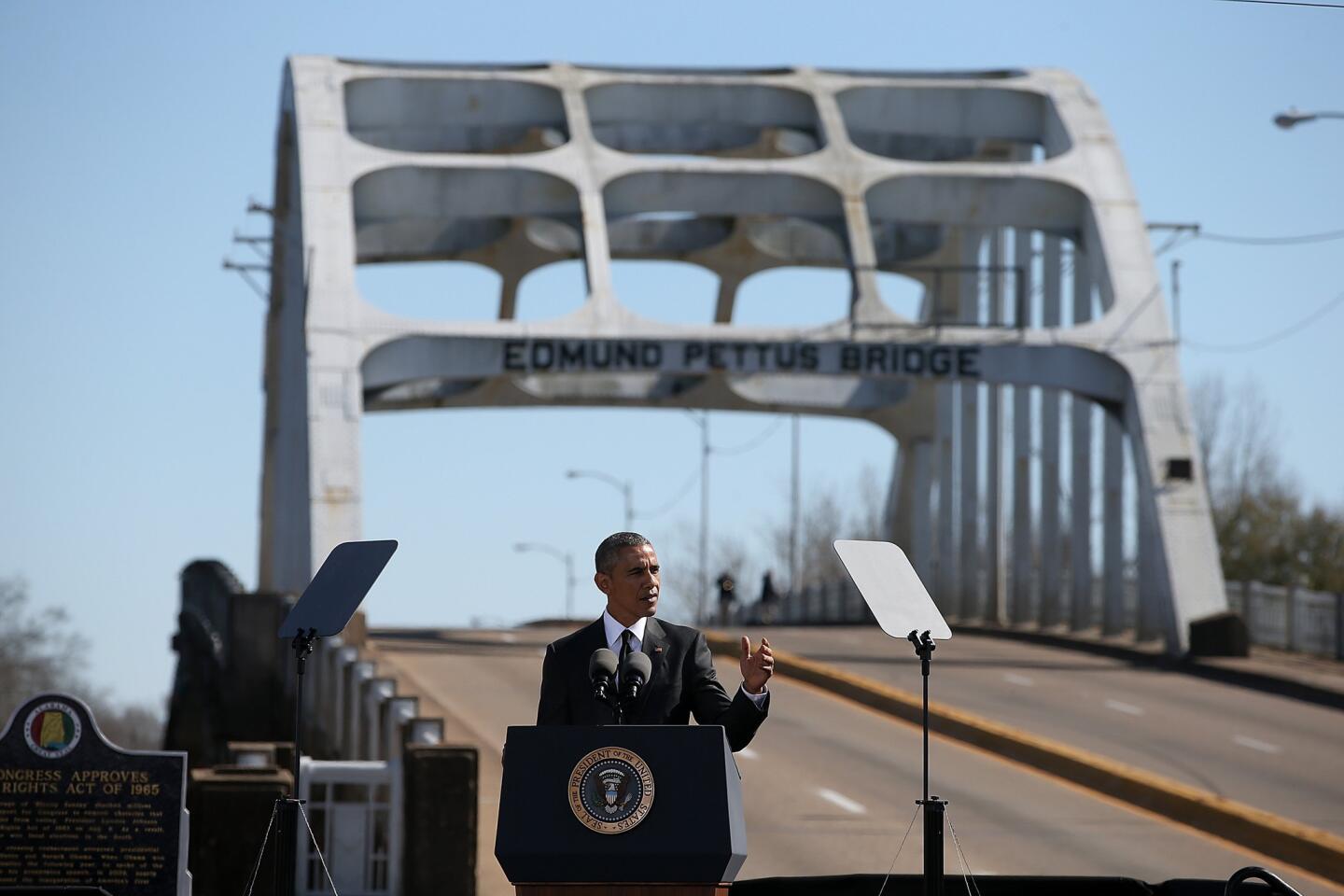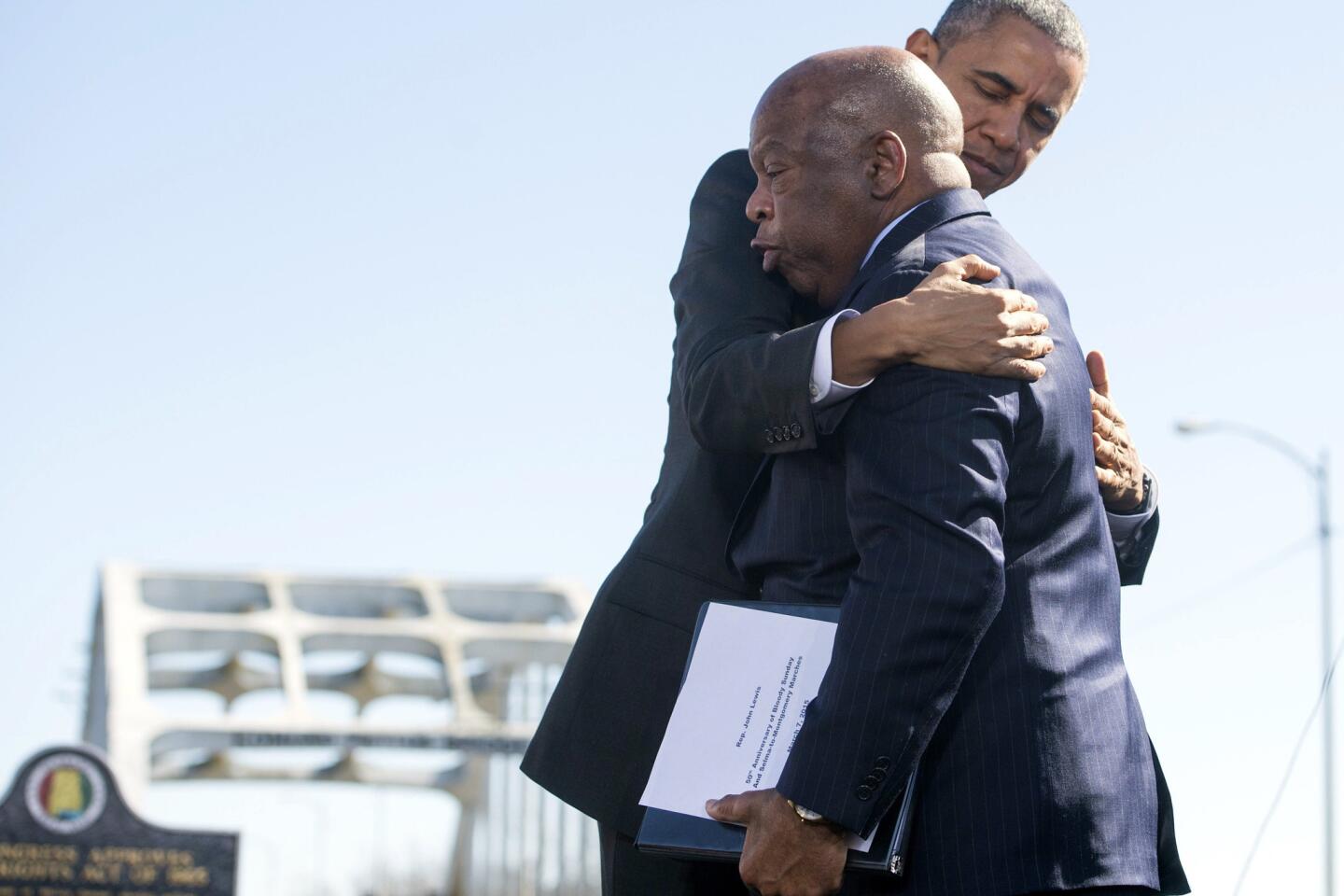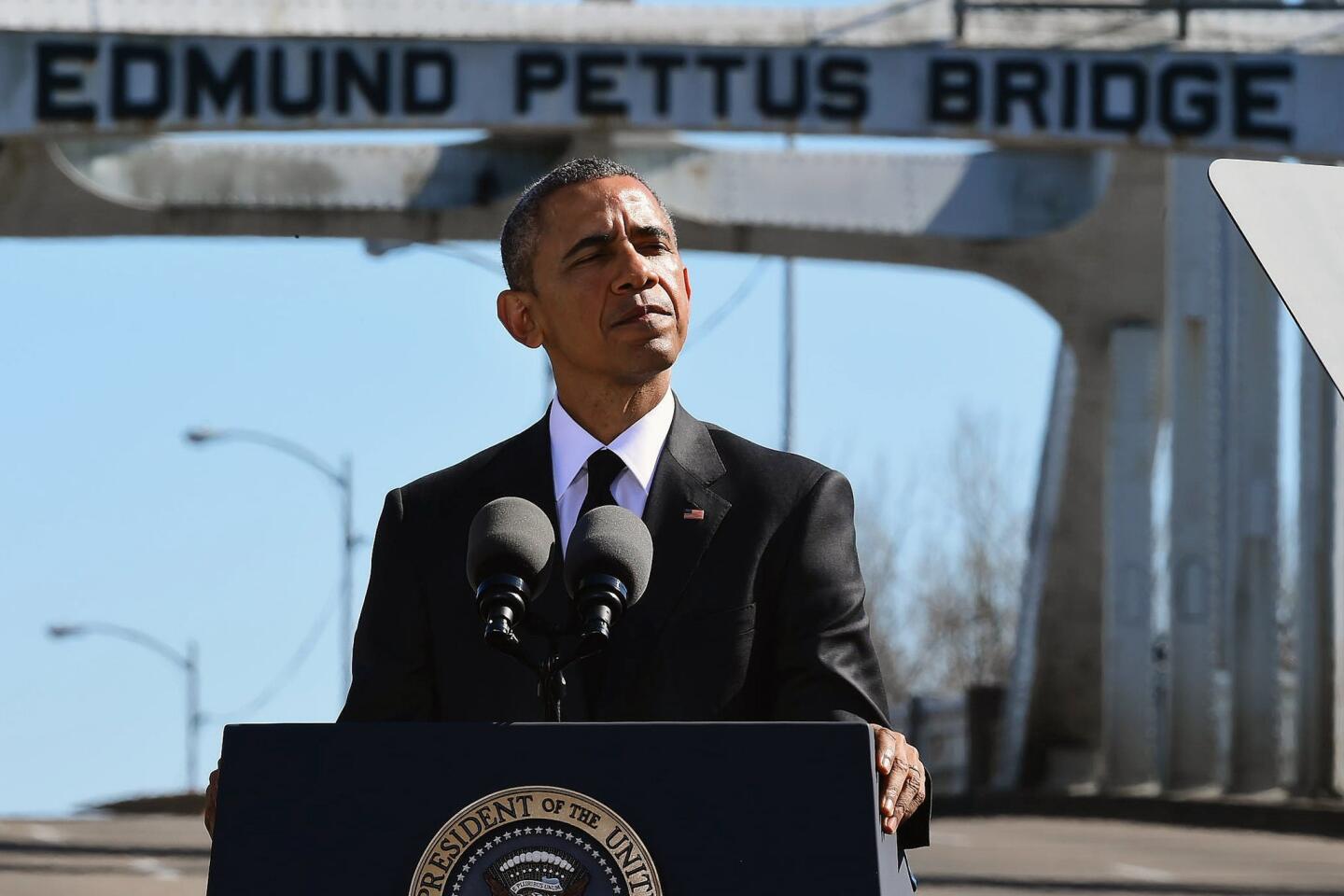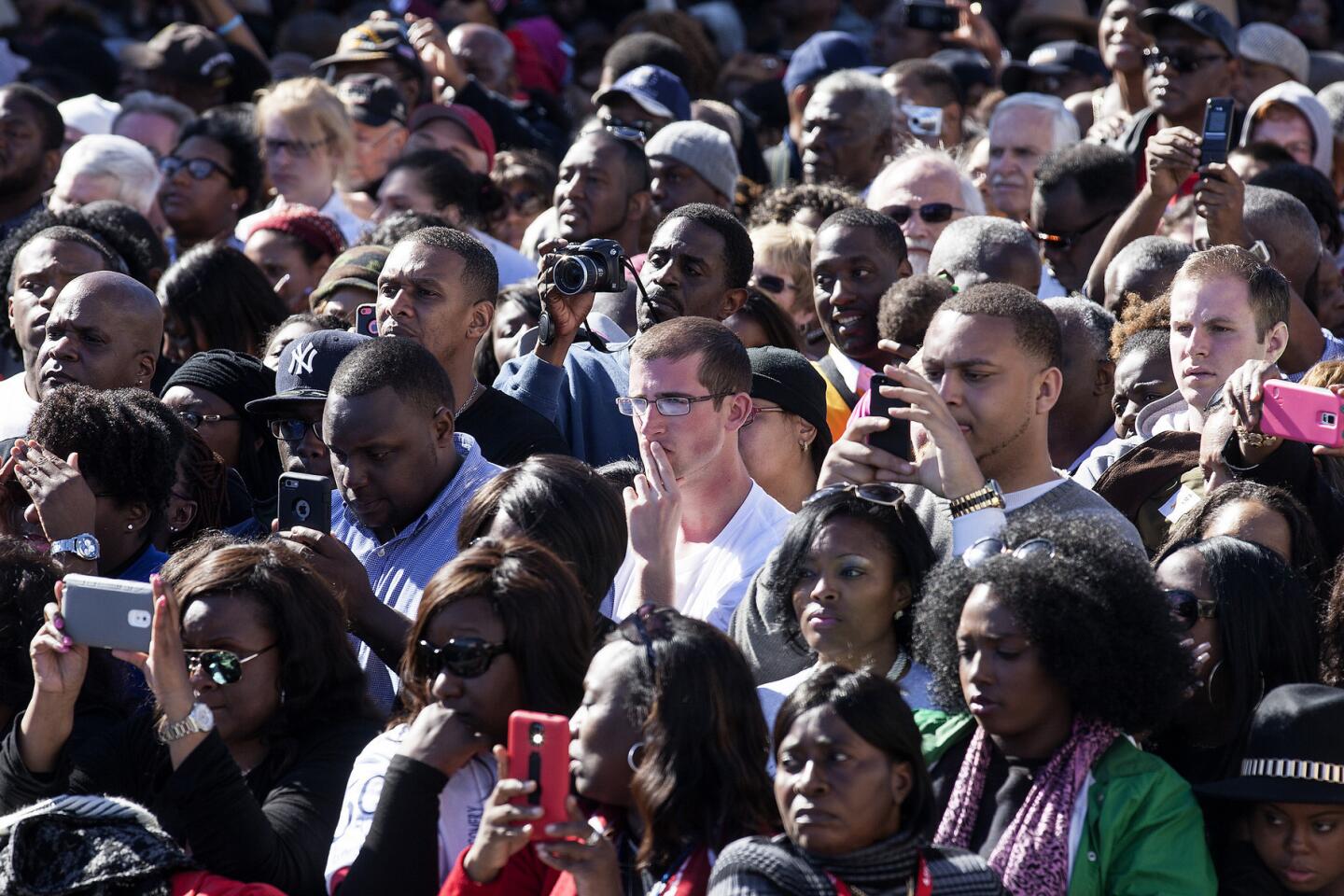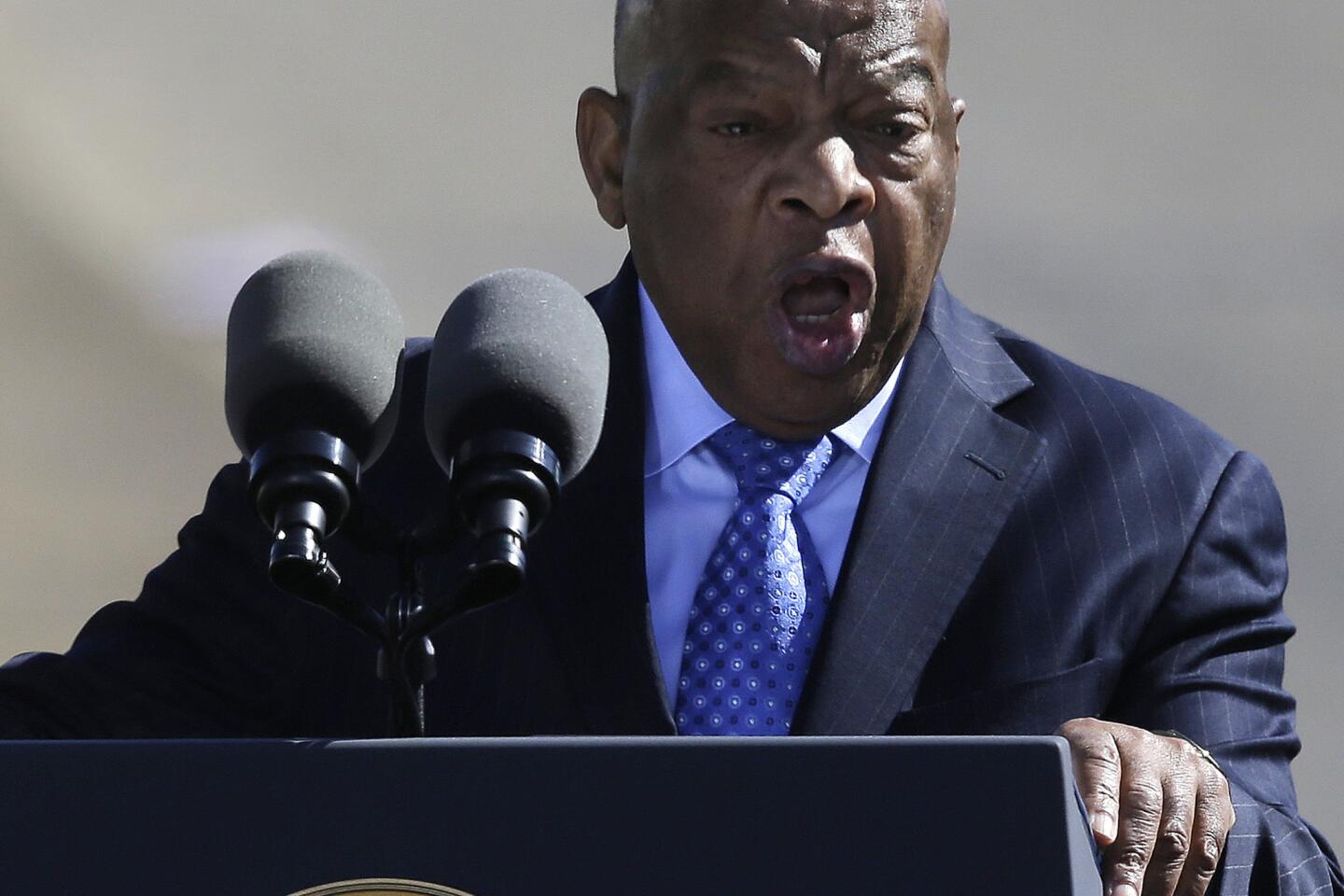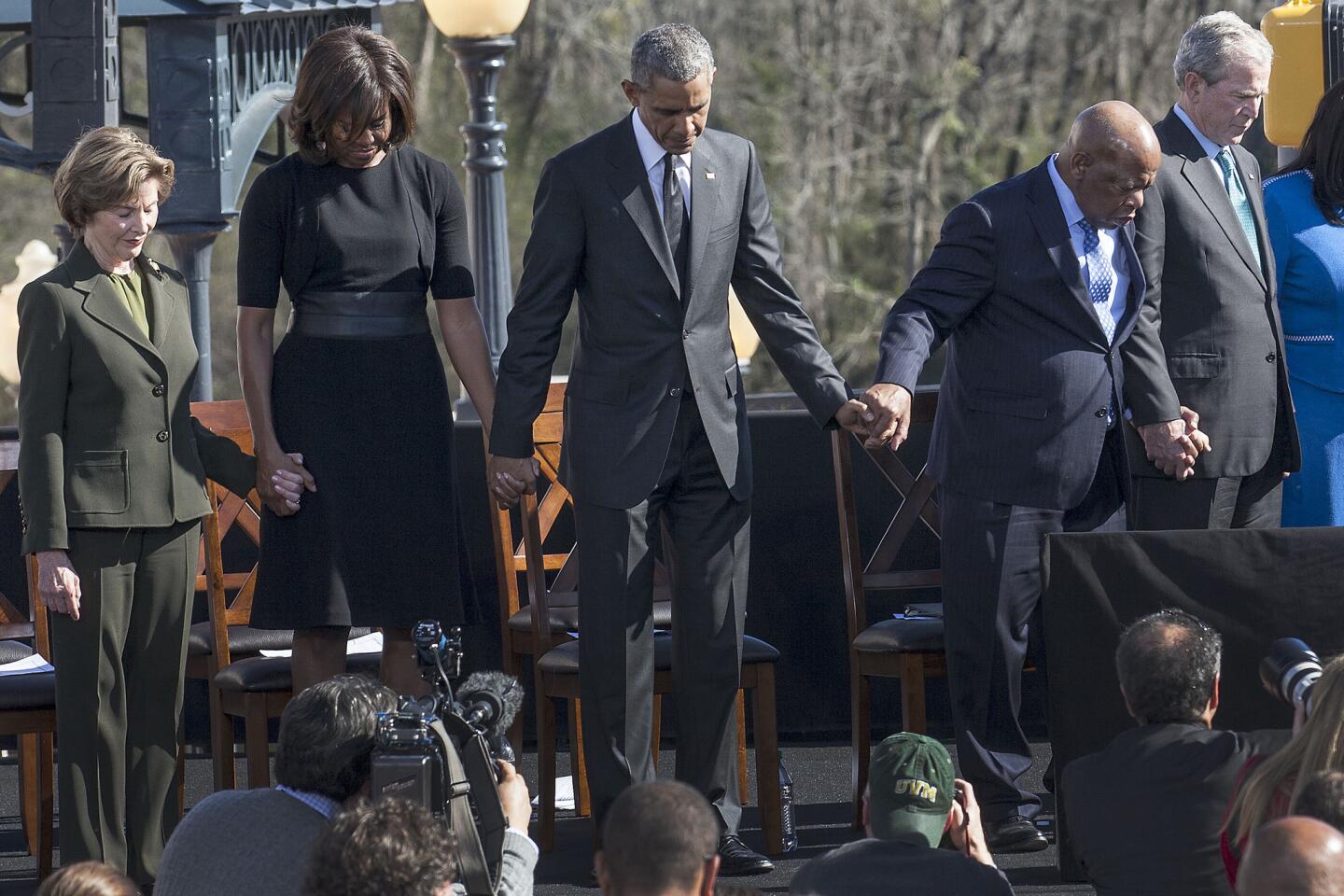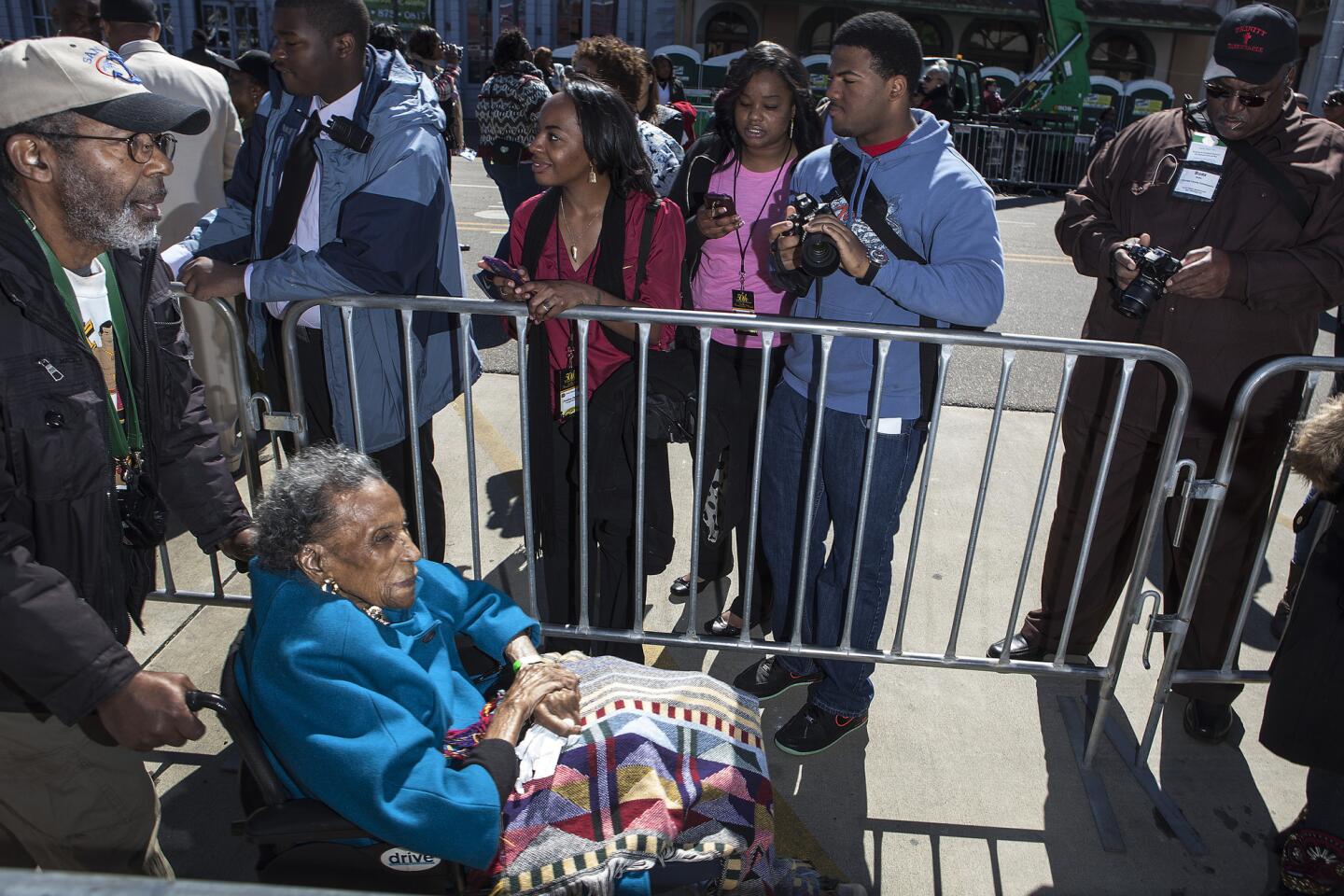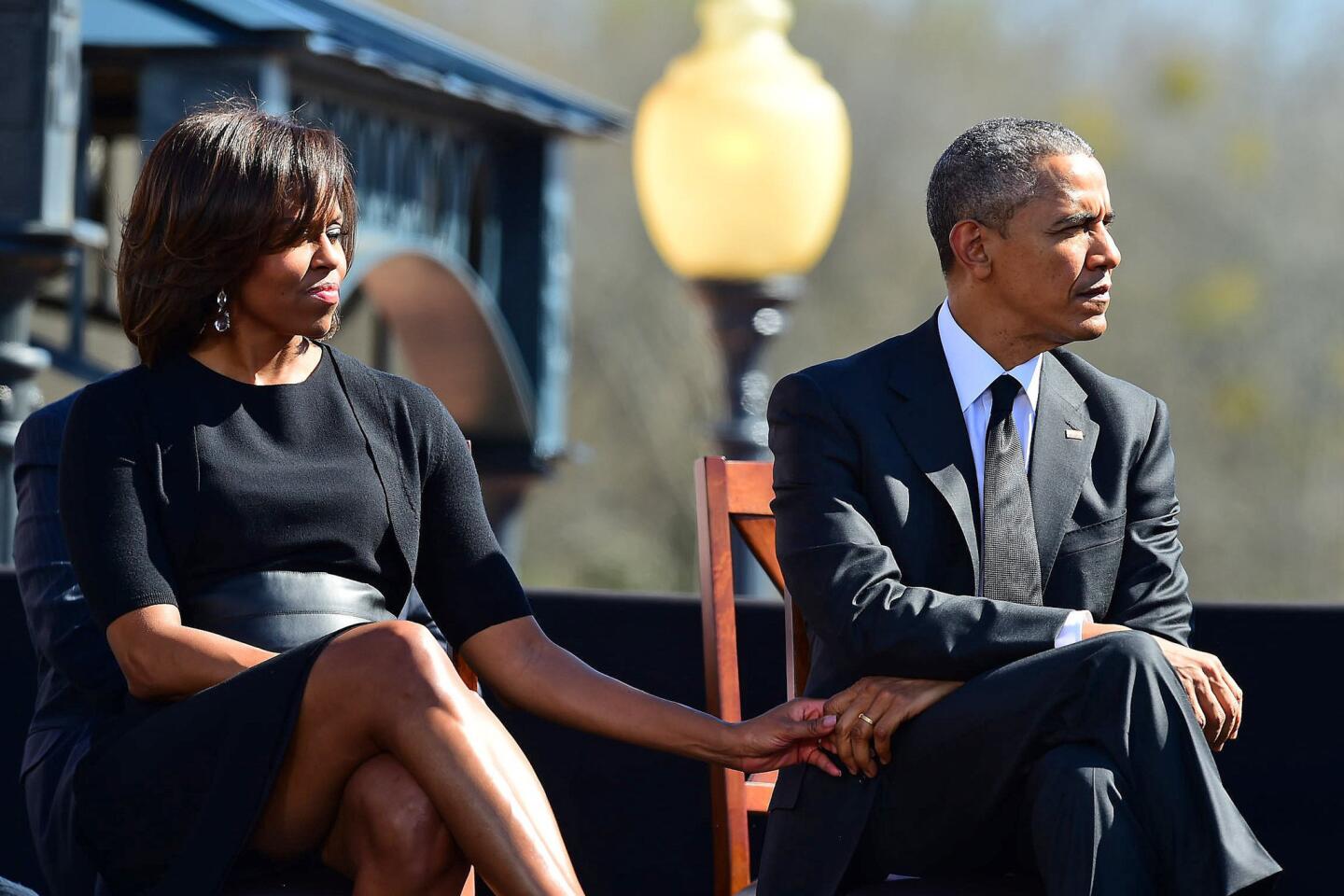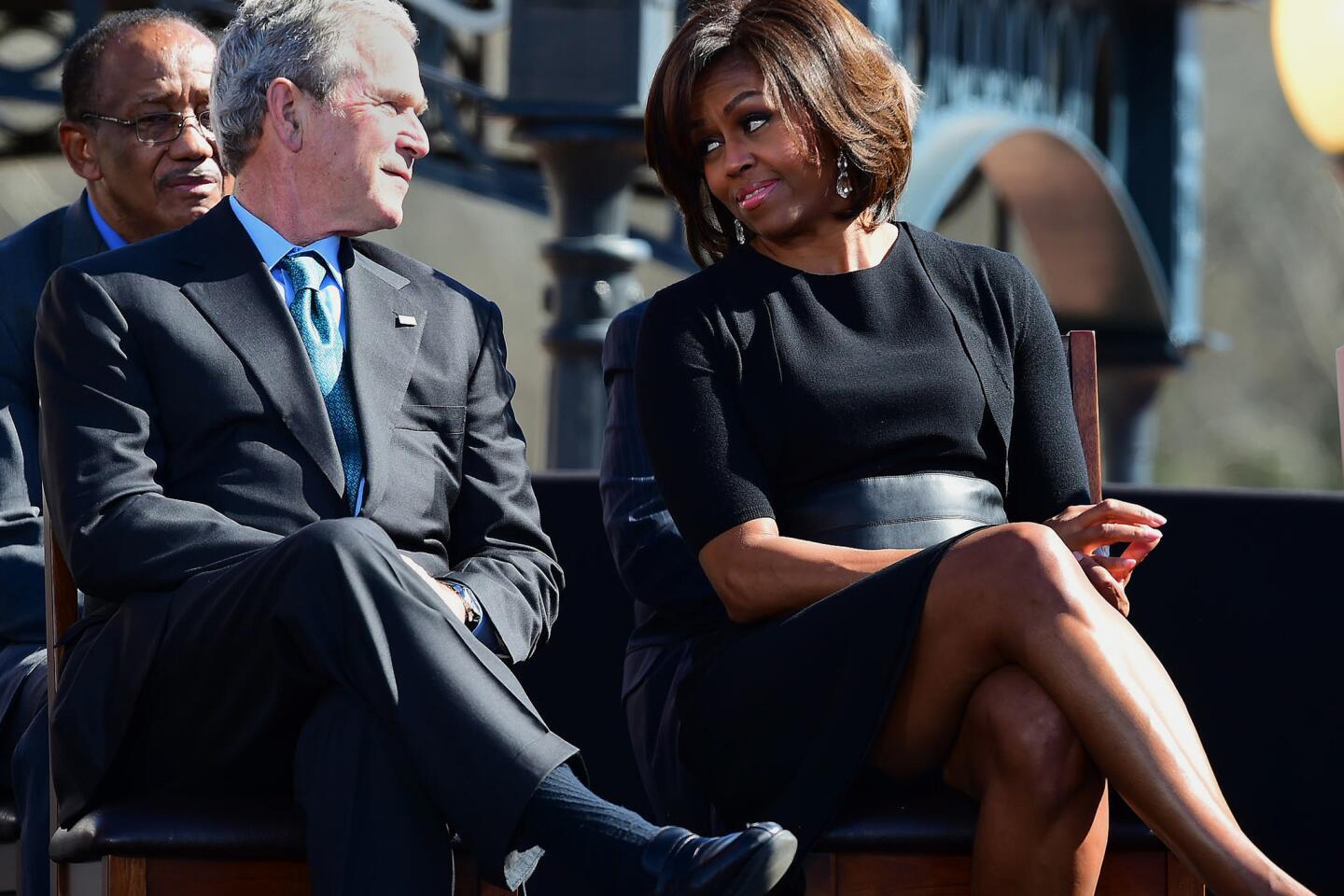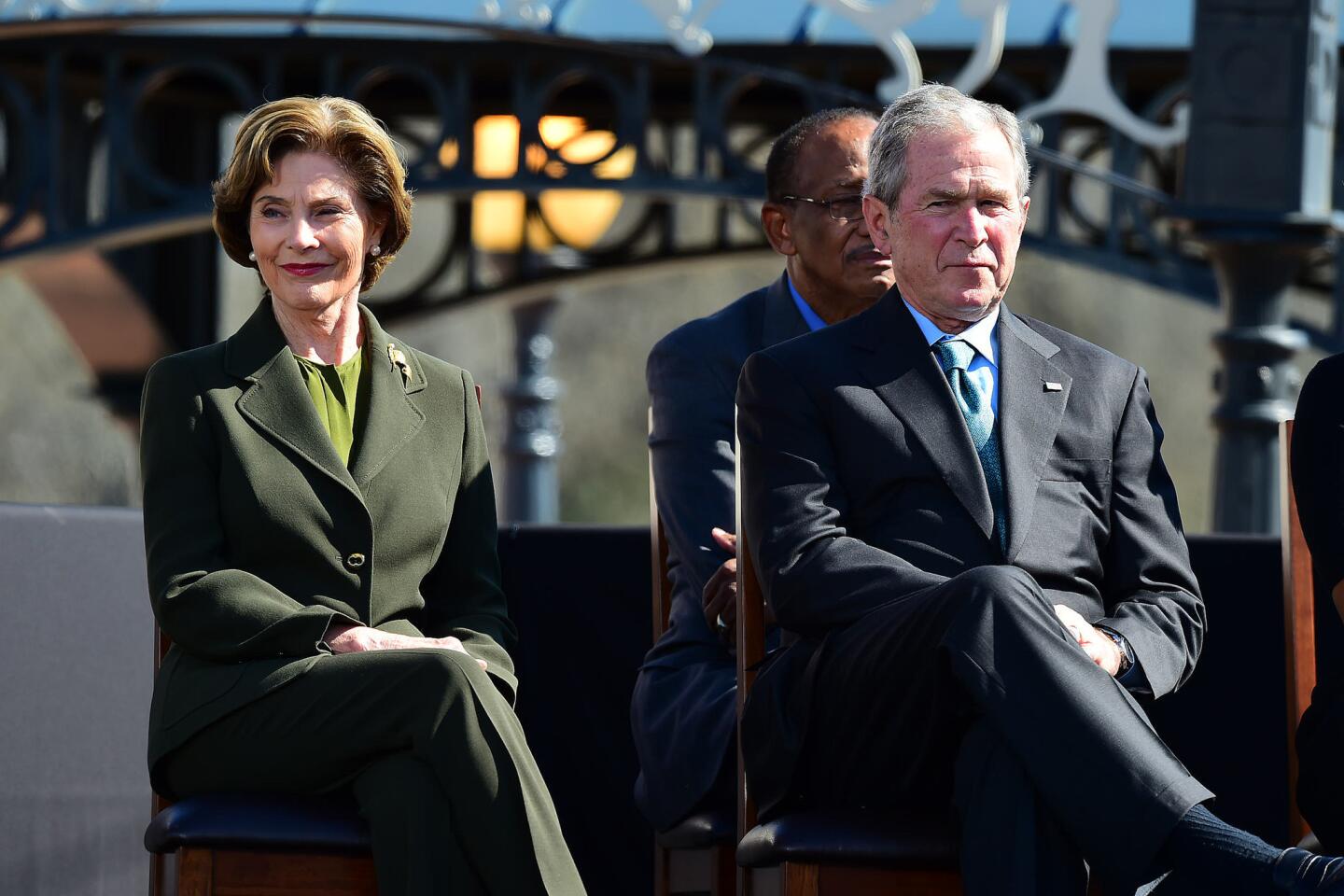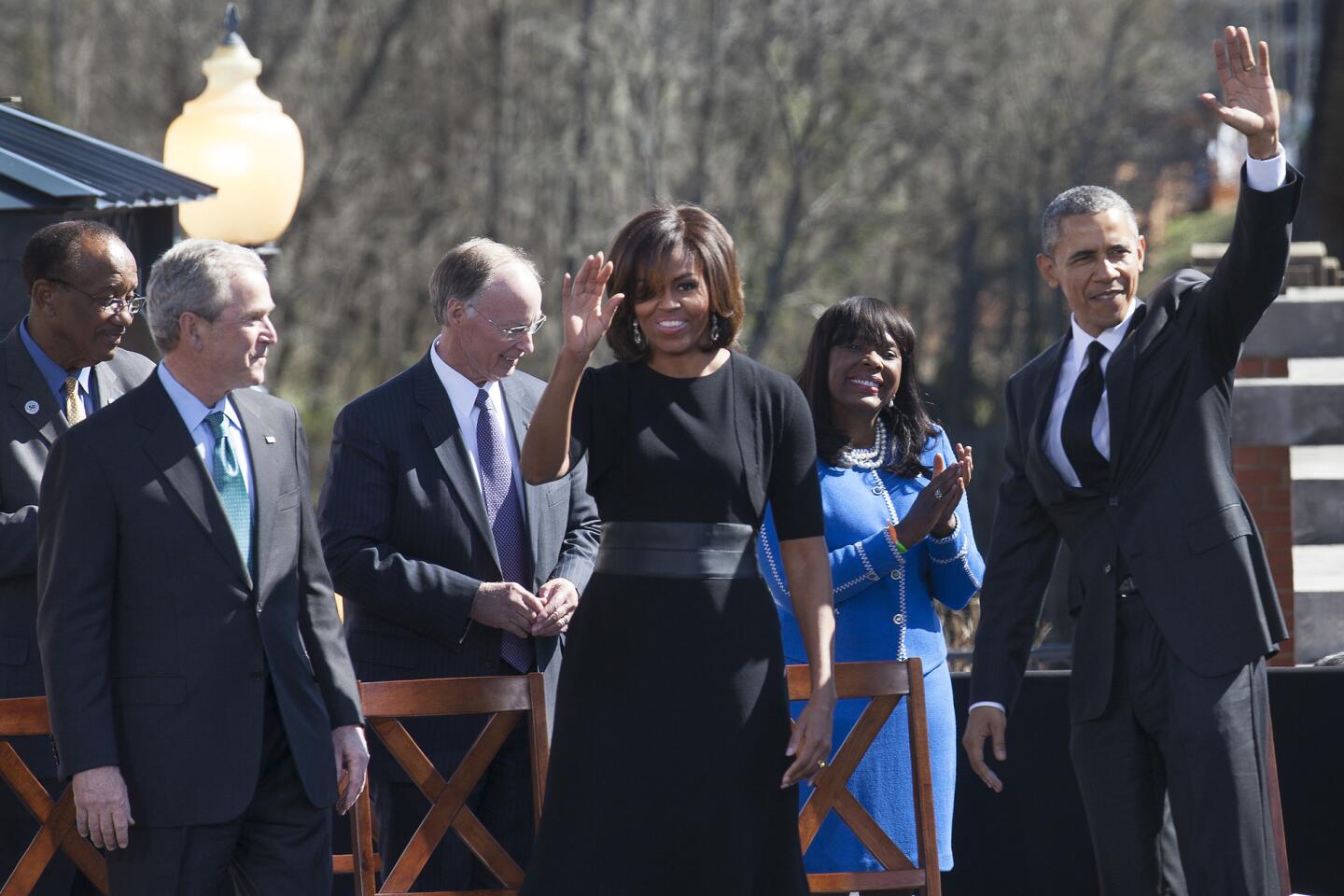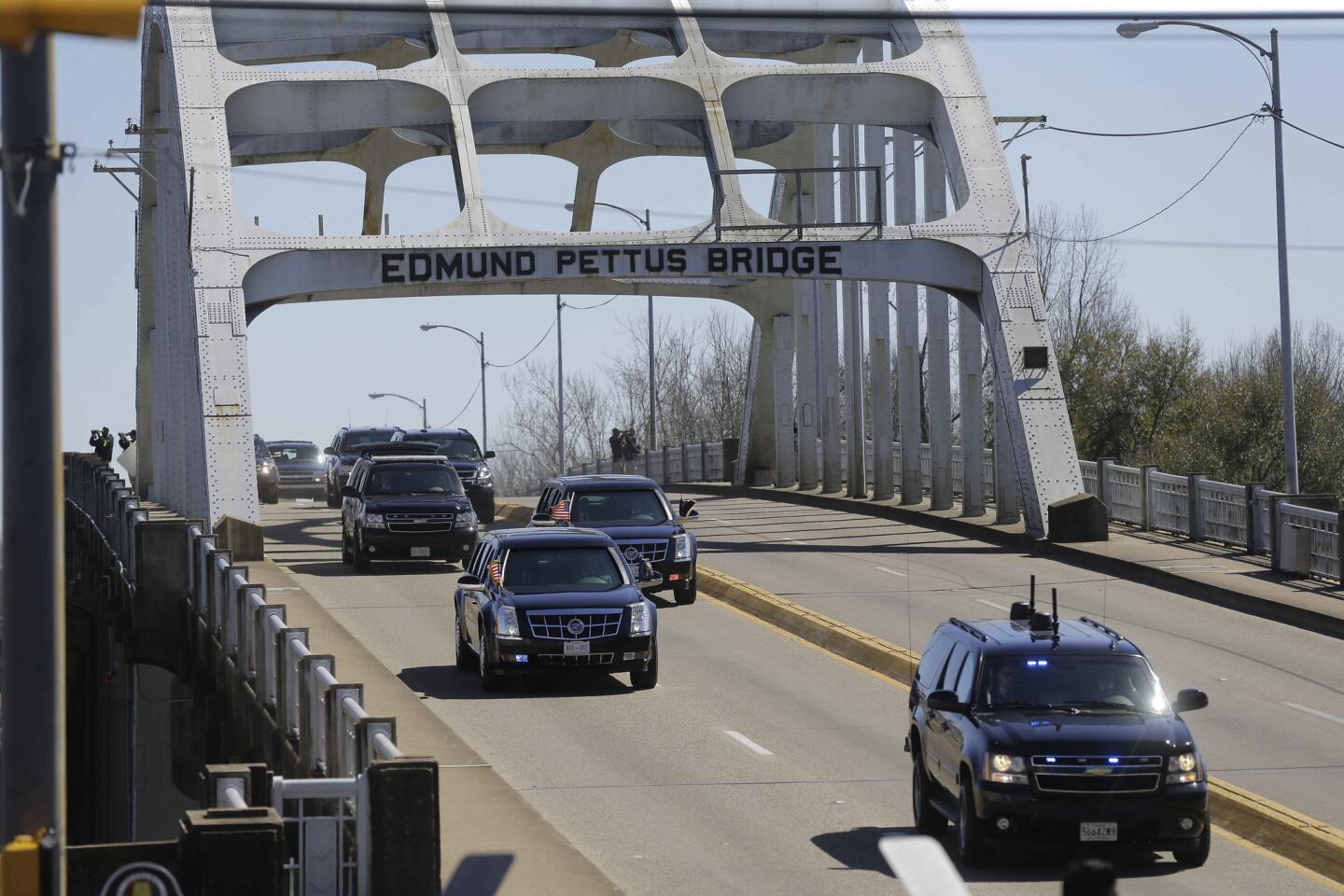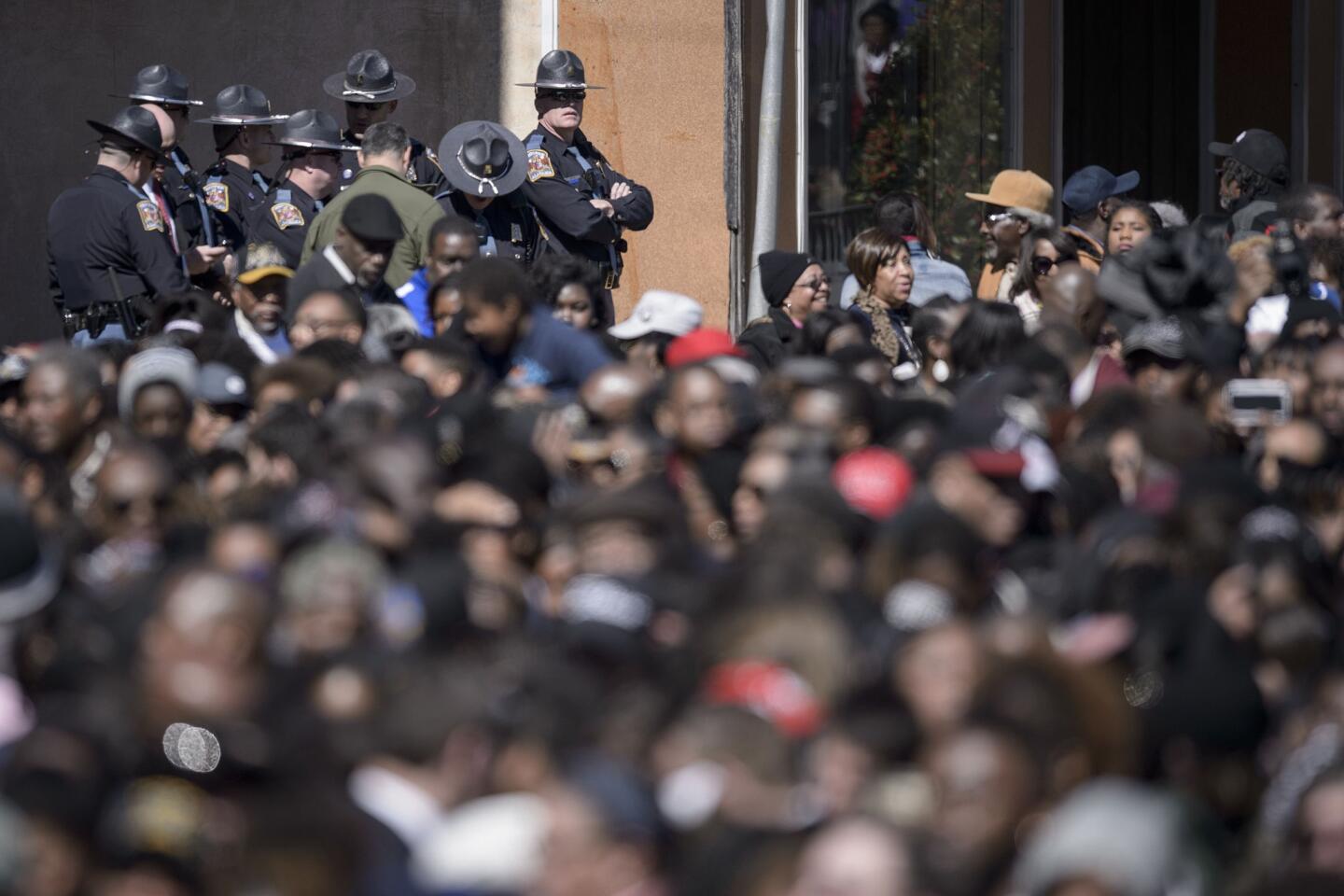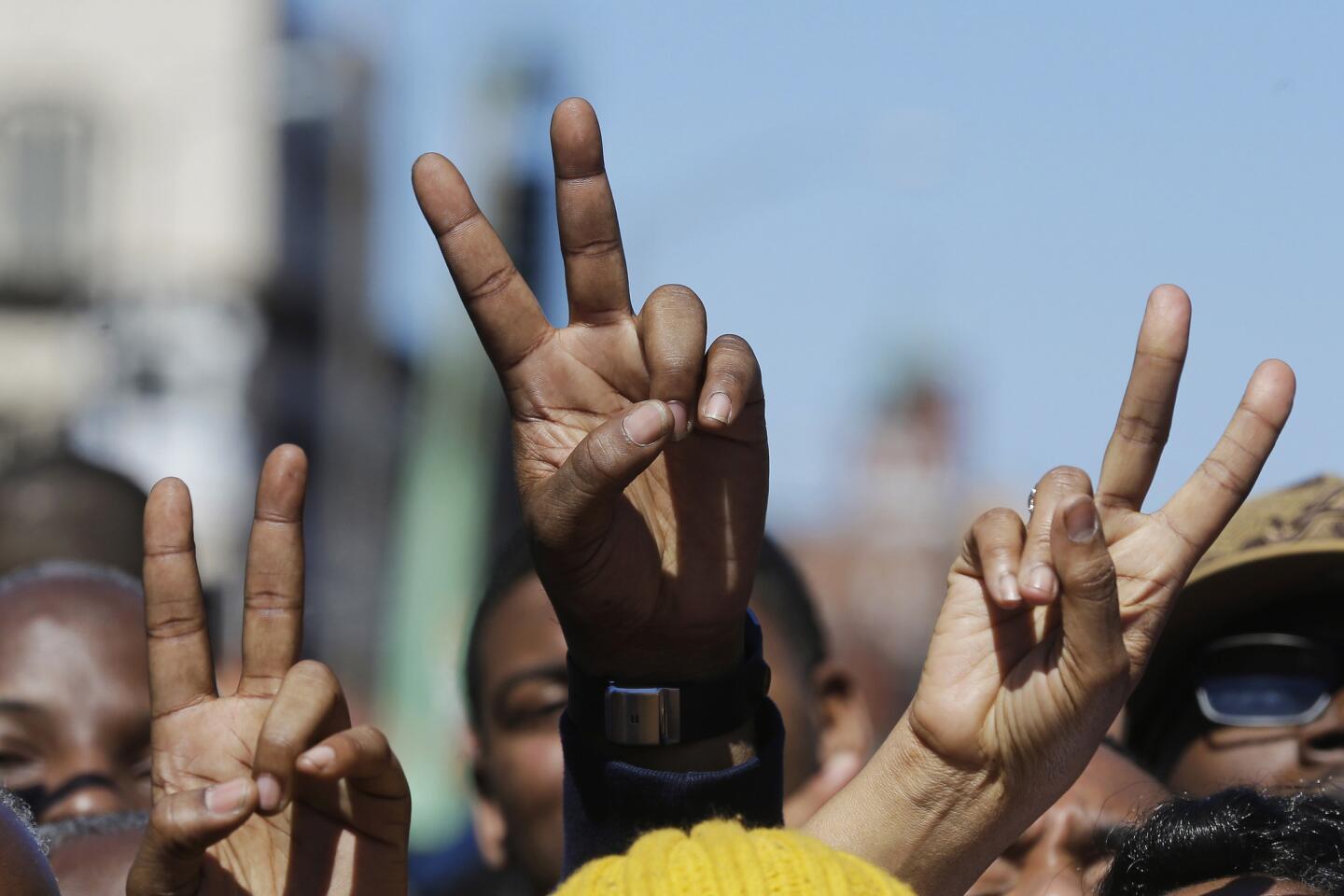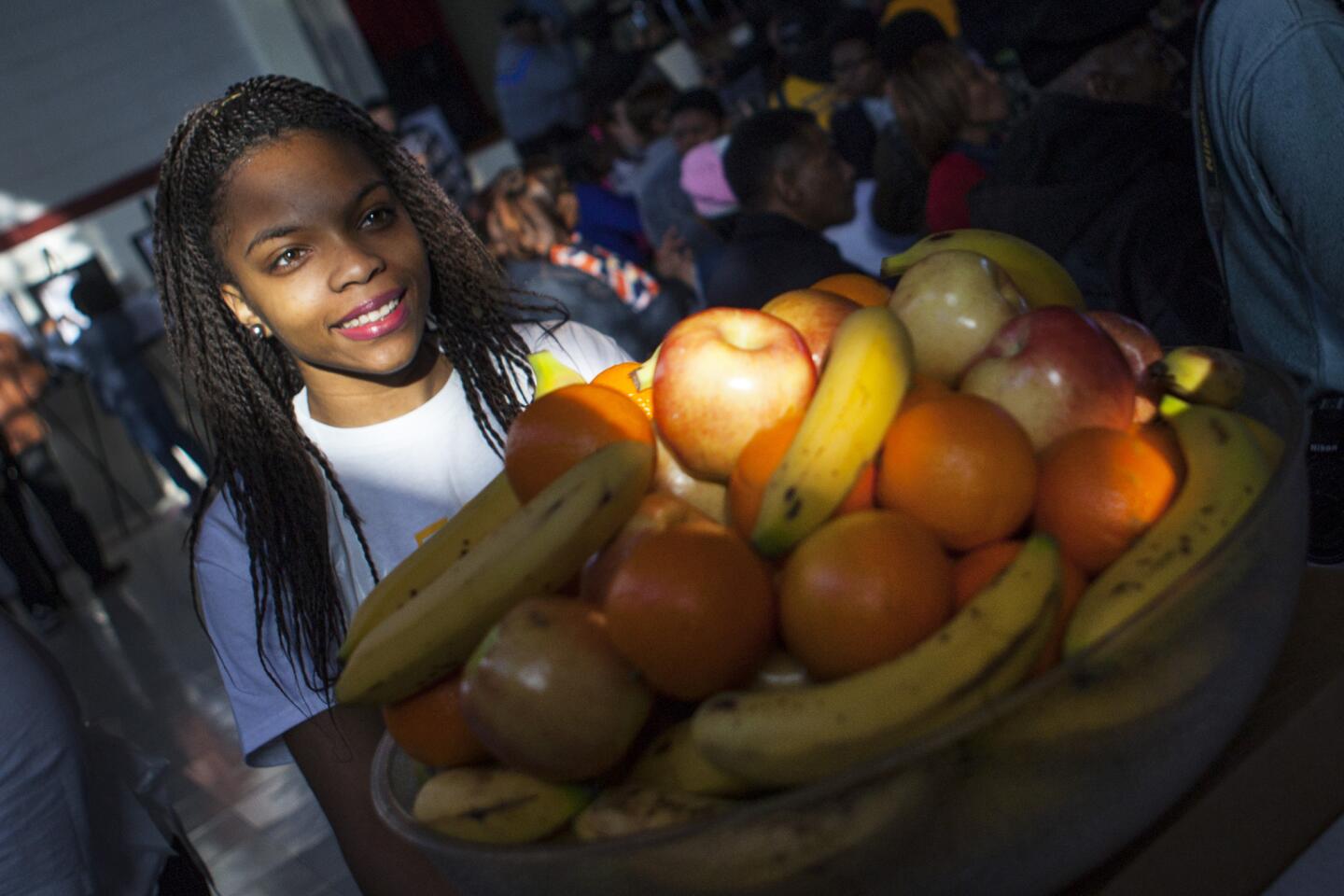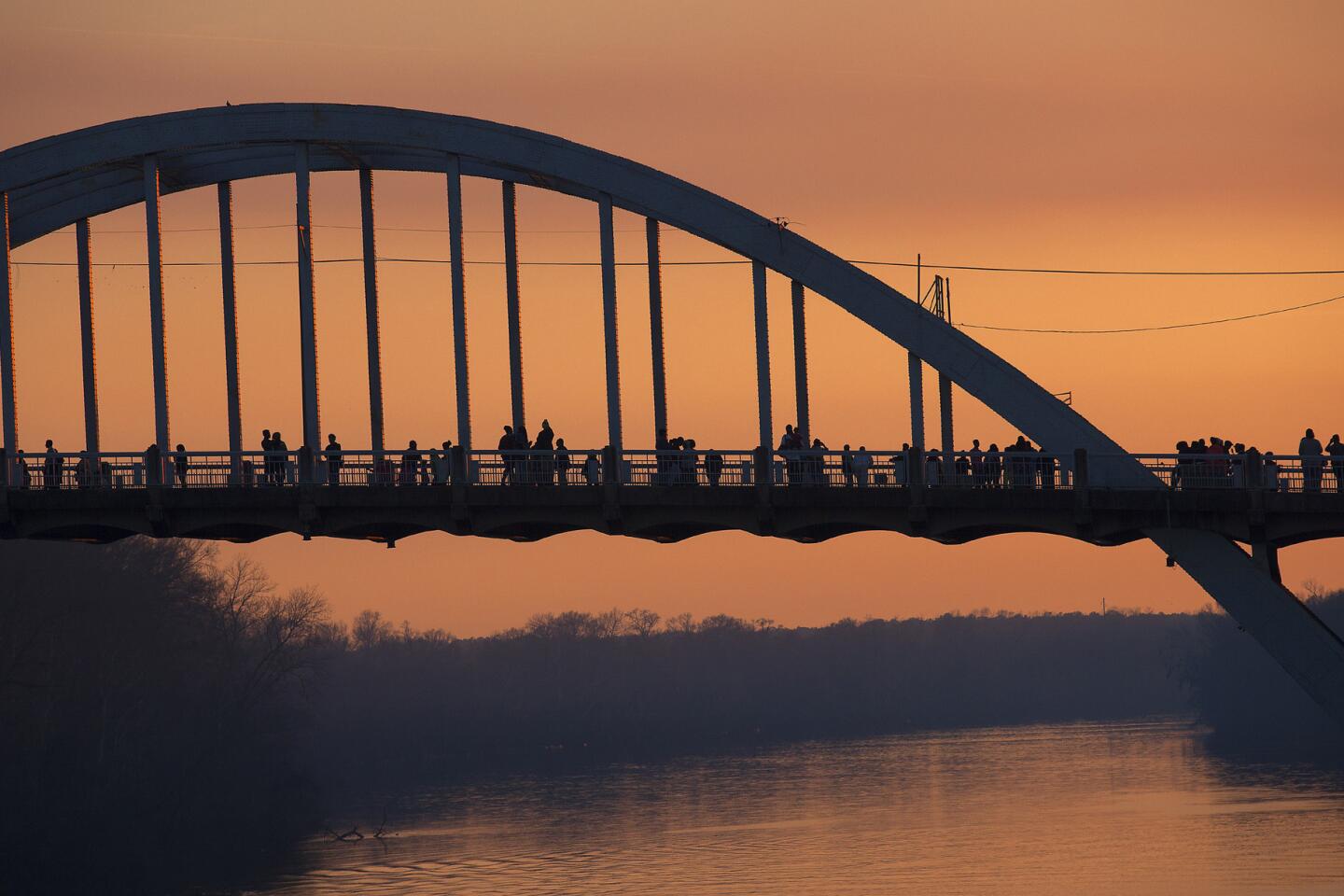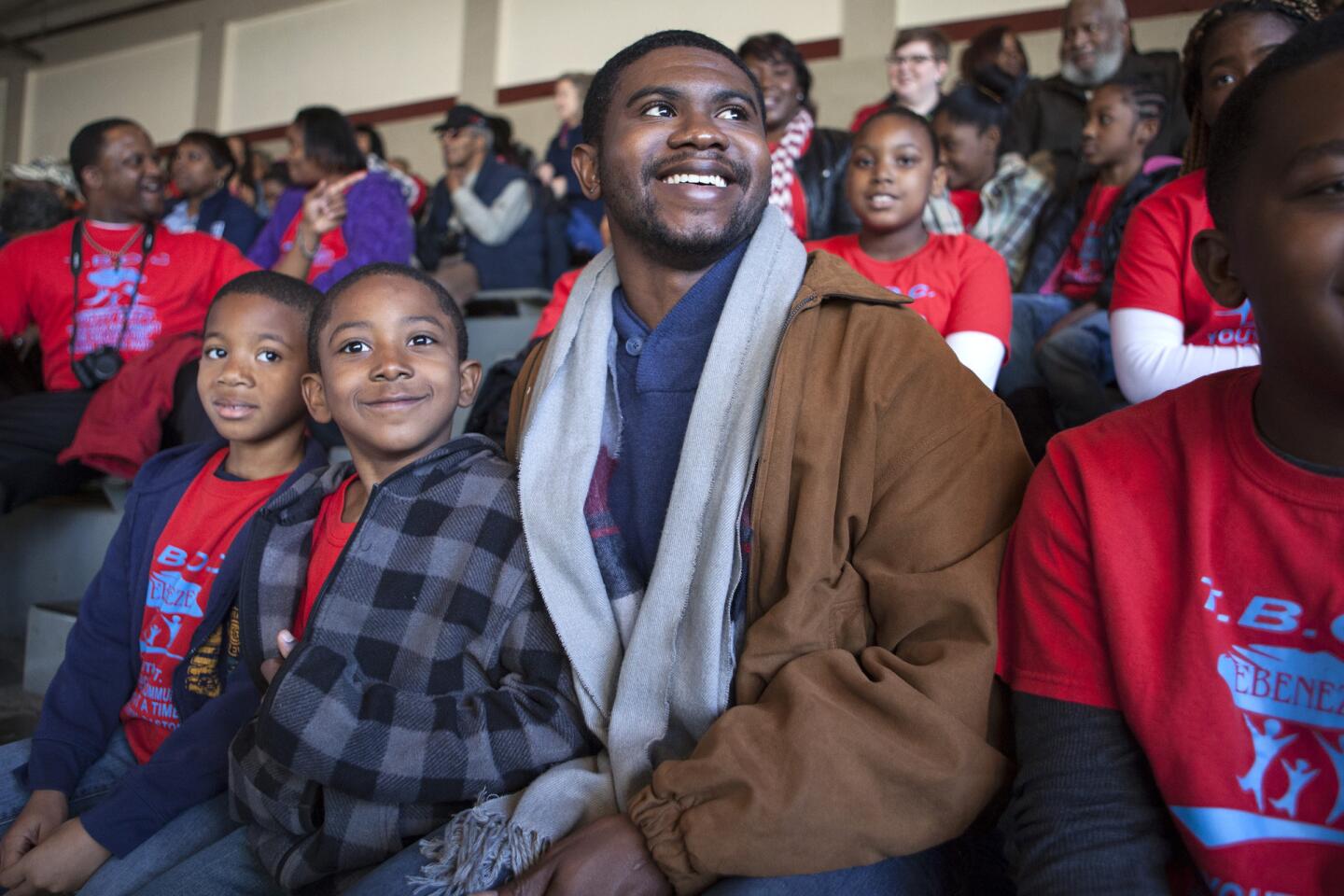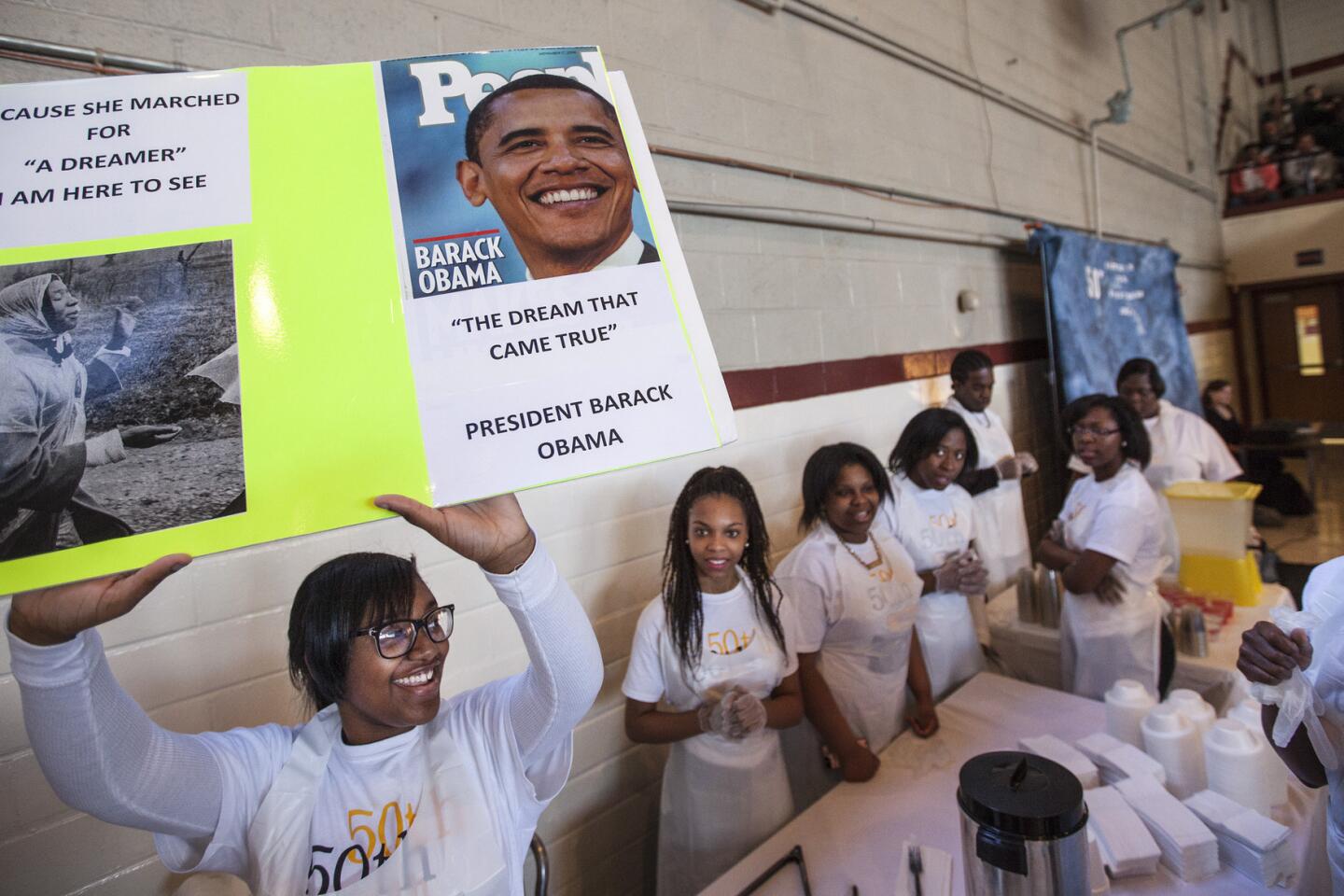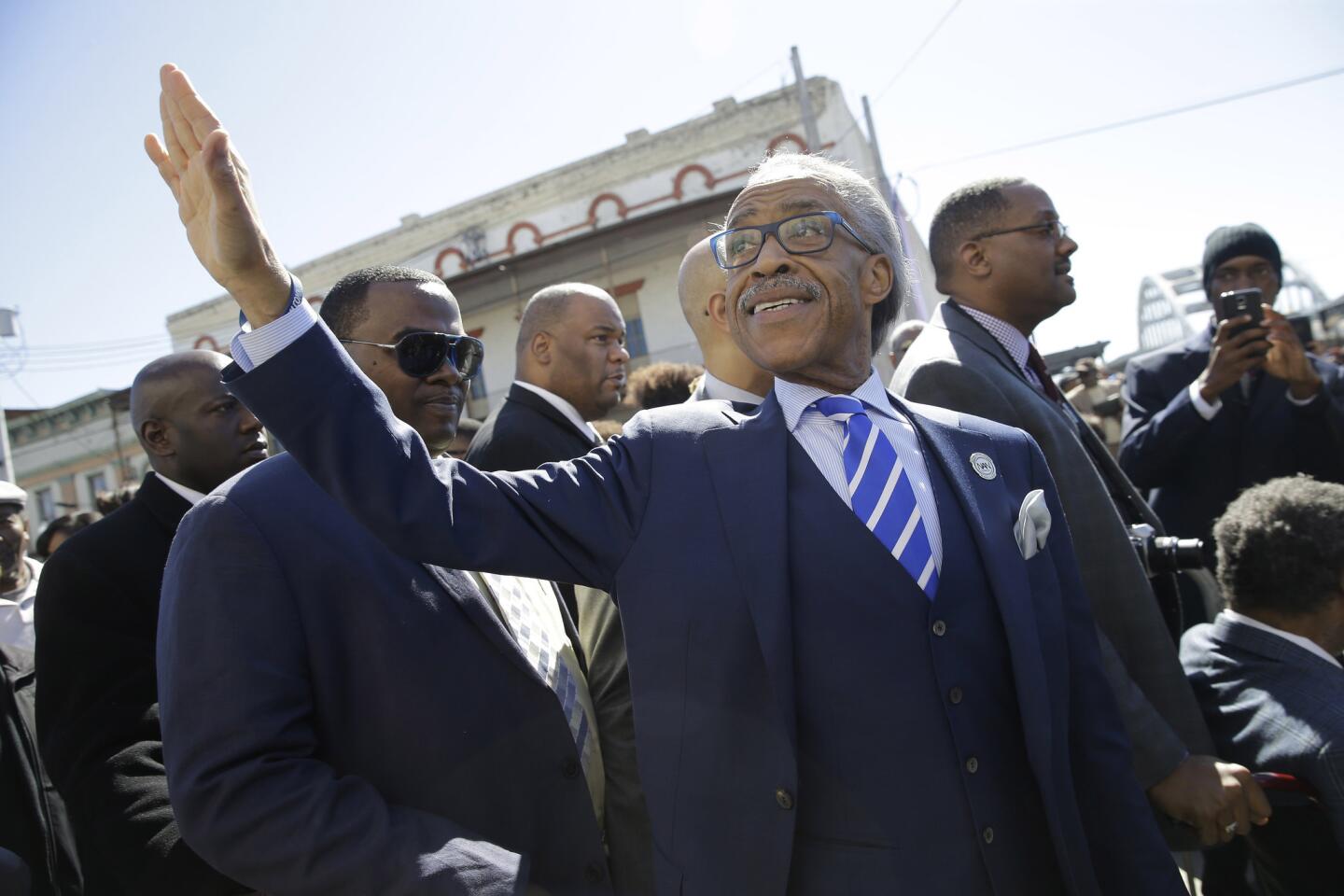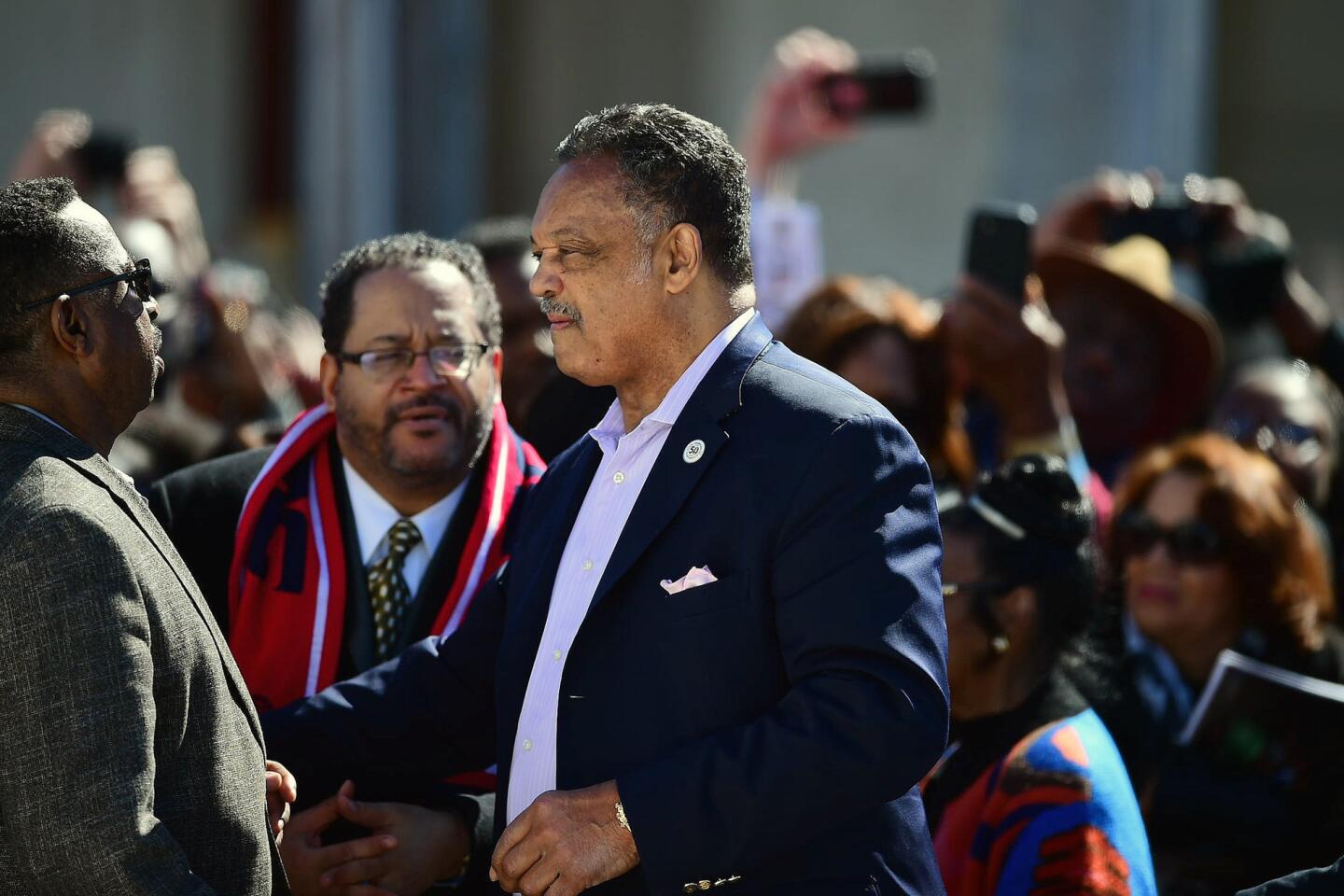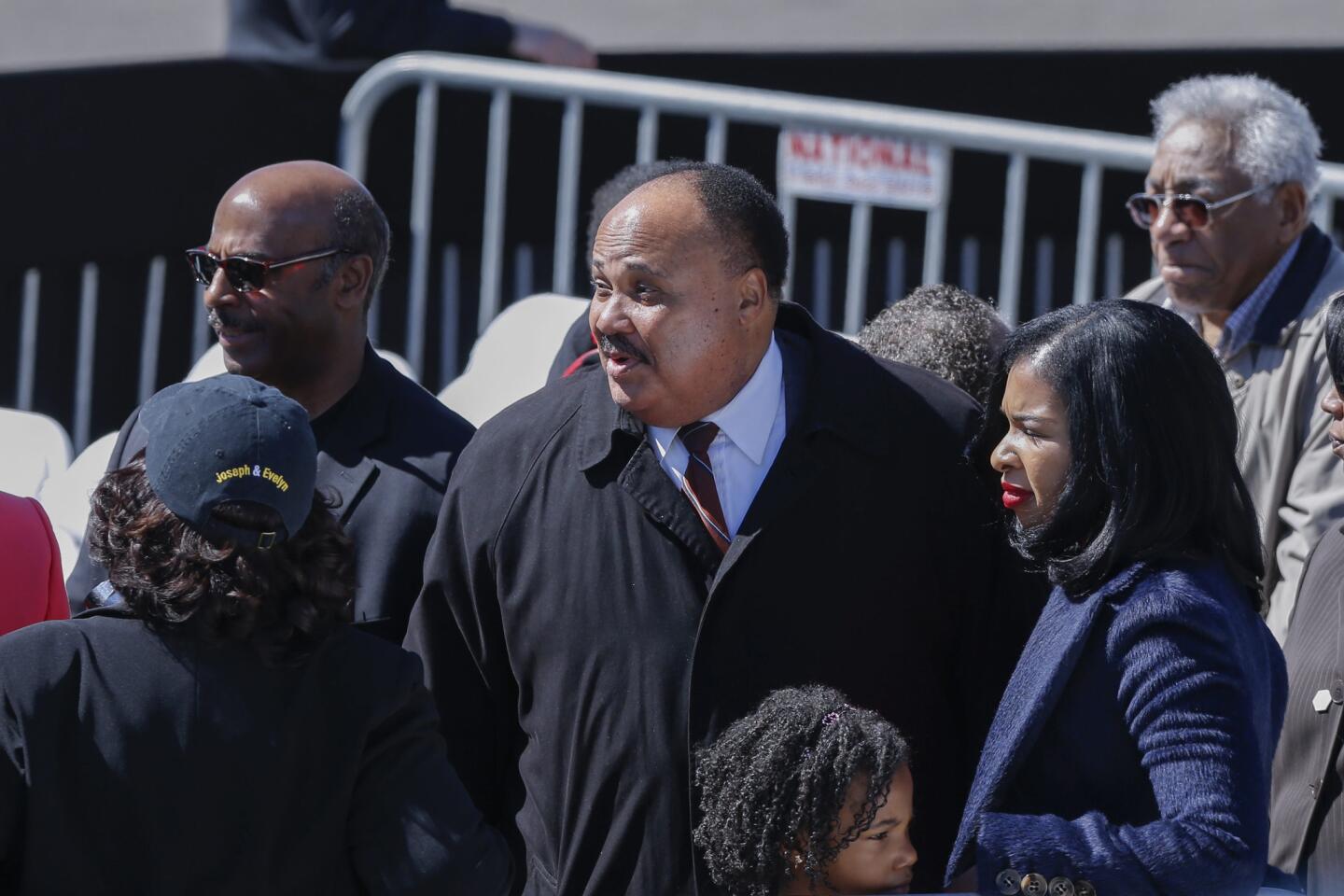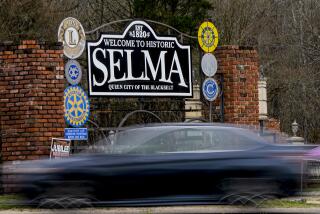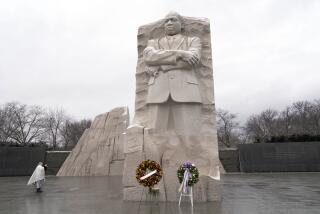In Selma, Ala., the young serve ‘Bloody Sunday’s’ veterans
Fifteen-year-old Briana Newberry hoisted the placard high above her head. It featured a photo of Ada Wilson Underwood, a woman walking in the rain 50 years ago Saturday during the violence-marred march that became known as “Bloody Sunday.”
The sign read, “Because she marched for a dreamer, I am here to see.” Next to those words was a photo of President Obama and the declaration: “The dream that came true.”
Newberry was among dozens of students from Selma High School who volunteered to serve breakfast Saturday to scores of seniors who marched that day or participated in other protest actions as “foot soldiers” of the civil rights movement.
“It was important for me to be here because these people fought for our rights and for us to go to school,” Newberry said.
Fellow Selma High student Mikayla Thomas, 14, echoed the sentiment.
“They marched for our freedom and our rights, and I feel I want to do something in return,” said Thomas, whose grandparents told her stories of being sprayed with fire hoses as they demonstrated for the right to vote.
“If it wasn’t for them, we wouldn’t be where we are today,” she added.
Empowering future generations has emerged as a key theme of this weekend’s events commemorating the 50th anniversary of Bloody Sunday, and former civil rights veterans came out in force to convey messages of remembrance, hope and unity.
Pastor Michael Barton accompanied dozens of young people from the Ebenezer Baptist Church in Forkland, Ala., to the breakfast honoring the civil rights veterans.
“We wanted the kids to learn something about the struggle,” said Barton, who succeeded famed civil rights leader the Rev. William McKinley Branch, the nation’s first black probate judge, as pastor at Ebenezer.
Chelsea Monroe, 15, said she had studied the civil rights movement at school and at her church and was familiar with the work of the church’s former pastor. She said she wanted to attend the Selma commemoration events because “it’s our history.”
“It’s where we come from,” Monroe added. “It’s important to know how they struggled for our rights, and where we are now. I want to learn about what they went through and how hard it was to get where we are.”
Gloria Sutton, daughter of “the lady in the rain,” as the woman featured on Newberry’s placard was dubbed, said her mother’s participation in the struggle made her determined to always exercise her right to vote, and she in turn encouraged her children and grandchildren to do the same.
Sutton’s 5-year-old granddaughter Destynee Sutton-Mobley proudly hoisted a placard with a photo of Obama and a picture of herself, with the caption “I voted at school.”
As the veteran activists waited to be served scrambled eggs, smoked sausage, ham and biscuits, among other treats, speakers took to the stage to praise their sacrifices. A singer belted “Aint gonna let nobody turn me around,” one of the iconic lyrics of the civil rights movement.
Willie White Harris, 70, a former barber who was born and raised in Selma, sat at a table with a group of fellow former “foot soldiers,” happy to participate in what he called “a reunion.”
“It brings back sad memories, but when you think about all that’s been, all the blood, sweat and pain…and then coming through the storm, it’s like the dawning of a new day,” Harris said.
He was excited that Obama had decided to visit Selma for the jubilee events. He was scheduled to speak around 11:30 a.m. PST.
“It brings such joy and happiness,” Harris said. “We realized the dream of Dr. Martin Luther King, and the hands that [once] picked cotton elected a black president. We didn’t think we would see that day. But it’s here.”
Essie Madison, mayor of Mumalle, Ala., said she wanted to ensure that young people understood that there is still work to be done and that education was the key to their success.
“Some young people have learned from the struggle, but some have not,” said Madison, 75, a mother of six grown children. A disability prevented Madison from walking in the Bloody Sunday march, but “I rode,” she said. “It was important to be there.”
Cordarrious Perry and his cousin Tiffany Moore said their grandmother, Pauline Hardwick, marched with King. They grew up hearing stories about the fight for equality and wanted to participate in the march to honor her memory as well as other veterans’.
“It’s a legacy and a blessing and I’m honored to be here,” said Perry, 24, a nursing student at Stillman College in Tuscaloosa, Ala.
Perry lamented the challenges facing many of today’s black youth, particularly in relation to the recent killings of several unarmed black men by law enforcement officers. But he said it was important not to get sidetracked or discouraged by such negative events.
“It’s more important to focus on home and unity,” Perry said. “We have to give a great example to follow. We have to pave the way for our daughters and sons.”
Twitter: @AMSimmons1
More to Read
Start your day right
Sign up for Essential California for news, features and recommendations from the L.A. Times and beyond in your inbox six days a week.
You may occasionally receive promotional content from the Los Angeles Times.
